A Natural Beauty
Jarin Simmons
reigns as Miss Charlotte USA

Having Babies at Home
More Black moms choose home births
Professional Vision and Grit
Charlotte women challenge stereotypes
Changed Choices
From incarceration to restored lives










Jarin Simmons
reigns as Miss Charlotte USA

More Black moms choose home births
Professional Vision and Grit
Charlotte women challenge stereotypes
Changed Choices
From incarceration to restored lives









This is what life is supposed to feel like. When you aren’t held back. When you have a health partner that doesn’t just treat part of you – they care for all of you. That’s why more people prefer Atrium Health, with the most complete care that lets you get back to the moments that matter. That’s what it’s like to live fully. live fully

Correction: The article, “Football, Family and a Foundation: How Steve Smith Sr. is expanding his legacy,” in the January/February 2023 issue, incorrectly names the team the Carolina Panthers played in Super Bowl XXXVIII. The Panthers played the New England Patriots in that match — not the Tampa Bay Buccaneers.


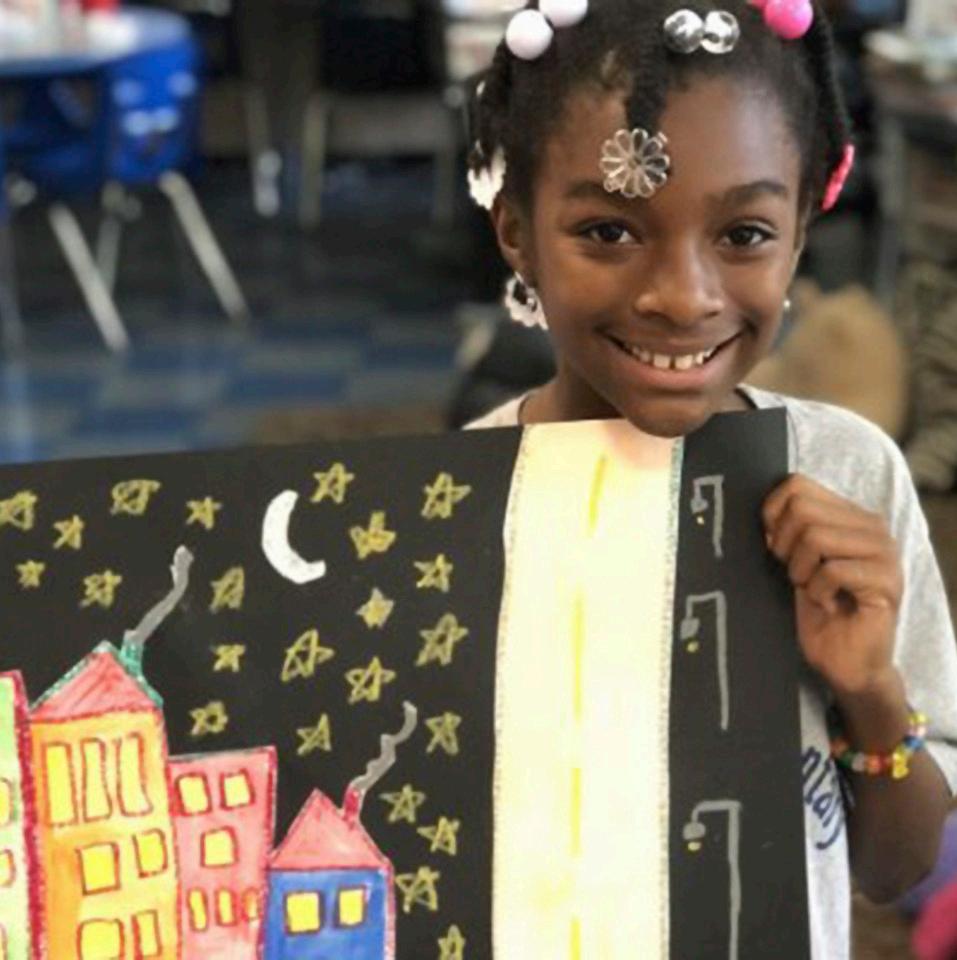
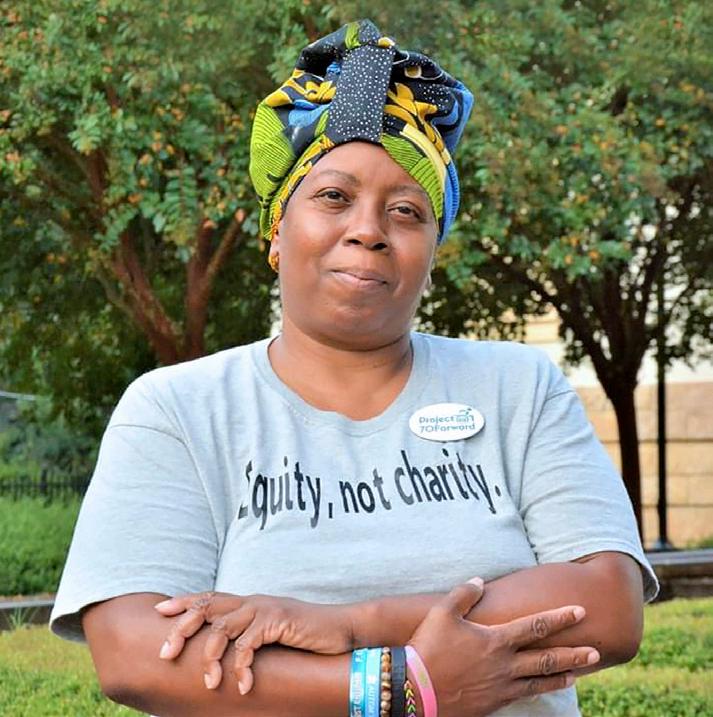
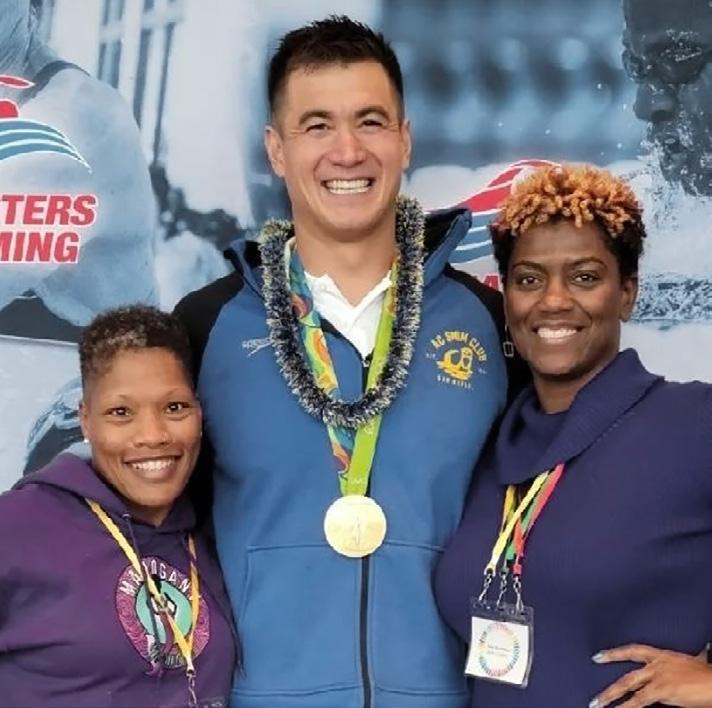
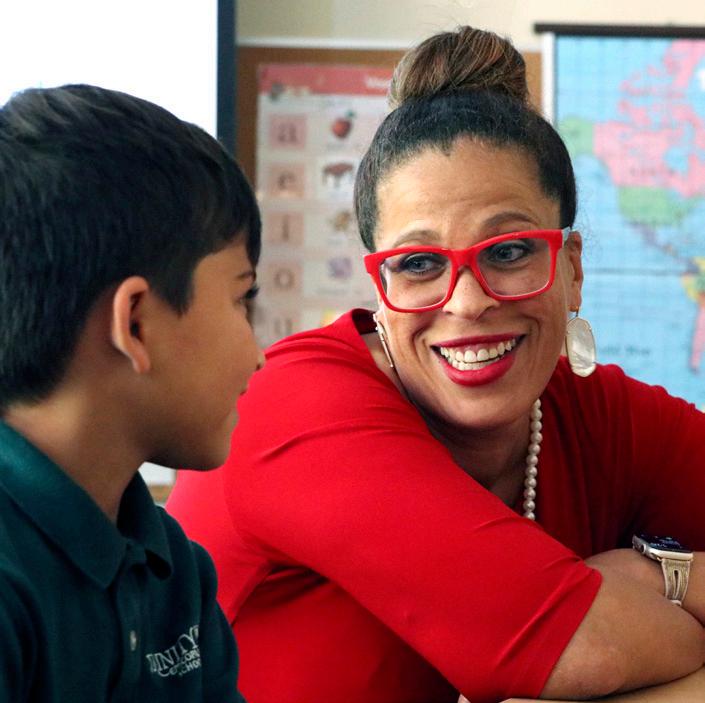

MAGAZINE
Charlotte’s African-American Magazine
CEO/Publisher Dee Dixon Editor Alicia Benjamin
Copy Editor Sonja Whitemon
Lead Writer Angela Lindsay
Creative Director Larry Preslar
Design & Production
SPARK Publications
www.SPARKpublications.com
Distribution
©Watch Dog Entertainment® LLC
Digital Content Distribution
Account Executive
Nikelle Fesperman
Public Relations
Nepherterra Estrada
Subscribe to Pride
$13.25. Please subscribe online at www.pridemagazineonline.com, mail to P.O. Box 30113, Charlotte, NC 28230 or call 704-375-9553

Letters to the Editor
Please send an e-mail to info@pridemagazine.net fax to 704-375-9550 or mail to Pride Magazine 8401 University Executive Park Drive, Ste. 122, Charlotte, NC 28262 www.pridemagazineonline.com
Copyright© 2023 Pride Magazine
All rights reserved. Copying or reproduction, in part or in whole, is strictly prohibited.
Pride Magazine reserves the right to deny any advertisement, listing or feature that does not meet Pride Magazine standards or that is outside the scope or mission of our magazine. Pride Magazine assumes no responsibility for information, products, services, or statements made by advertisers or editorial contributors.
Pride Magazine prints with soy ink.

Vol. 31 No. 2
March-April 2023
All rights reserved for PRIDE Communications Inc.
Find us on Facebook: Facebook.com/PrideMagazineNC
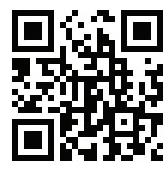

Find us on Instagram: @pridemagazinenc

Find us on LinkedIn: Pride Communications, Inc.

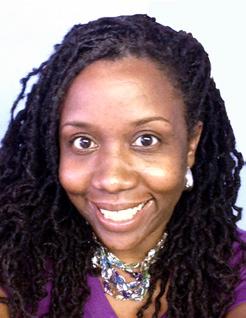
Kids are growing up in a world that is almost unrecognizable from what I knew. Back in my tween years, my favorite things to do were jumping rope outside, riding my bike, reading Word Up! magazine, making friendship bracelets, going to Kates Skating Rink and hanging out with my friends at Eastland Mall. Over the years, the technology monster has slowly taken over people’s lives, and it has definitely changed the way kids are spending their free time.
As of late, my husband and I have been faced with the tough decision of buying our son a smartphone. He gives us gentle reminders every birthday and Christmas (or just on a random weekend), that he is the only middle schooler in the universe that doesn’t own a phone. Please understand, he is not living in the dark ages. He has a tablet he uses at home (no internet though), a PS4, and a smartwatch that lets him call or text me whenever he wants.
According to Common Sense Media, 53 percent of children own a phone by the age of 11. My son will be 12 this year, and while most moms I know have caved in and gotten their kids phones by this age, I still have my reservations.

Here are a few of my concerns: Maturity — Since school started this year, my son has lost a jacket, water bottle, remote control to our TV, and left his science notebook at school for several days. At 11 years old, I’m not 100 percent sure I can trust
him with such an expensive, breakable device that he will carry around in his back pocket.
— I have read so many articles about how excessive use of technology, especially phones, increases the rate of childhood anxiety, obesity, depression, behavior problems and poor sleep.
Inappropriate websites — I’m afraid the innocence of childhood will be lost as soon as he can freely access the internet. With just one click, he will be face to face with porn, violence, news and disturbing images.
— Studies show one out of every 11 children aged 8 to 18 are addicted to new technologies – a very alarming figure that may increase as years go by. When used compulsively, it ends creativity and limits social interaction. Kids become more separated from their parents, family and friends.
While my husband and I are feeling the pressure to give in, we’re holding back as long as we can. Even Bill Gates didn’t give his kids phones until they were 14, so I don’t feel too guilty for wanting to wait. I did, however, make a deal with him last summer, that if he gets all A’s and B’s on his report card this year, we will consider buying one. Now the ball is in his court.
Studies show one out of every 11 children aged 8 to 18 are addicted to new technologies – a very alarming figure that may increase as years go by.


LaToya Simms was recently hired as director of the Canopy Real Estate Institute (CREI,) bringing more than 20 years of experience with the North Carolina Real Estate Commission. In her new role, she is responsible for day-to-day operations and management of the institute, including prelicensing, post-licensing and continuing education courses, as well as the National Association of Realtors® designation classes and certification courses.
During the pandemic, Simms helped multiple real estate schools transition to virtual classes where she taught virtual continuing education and professional development and training courses throughout the state. Her background in real estate education and licensing has contributed to enhancing CREI’s reputation as a quality provider of affordable real estate education and has been instrumental in building CREI’s digital campus launching in 2023. She is also in charge of continuing the expansion of the institute’s technology tools and resources to strengthen CREI’s online and virtual offerings.
Band director and gospel jazz artist Walter Suggs is the recipient of this year’s Manilow Music Project Music Teacher Award for his impact at the Phillip O. Berry Academy of Technology. The award is presented by music icon Barry Manilow to a teacher who is helping to keep music alive in every city where Manilow performs.
The Manilow Music Project supports music education through donations, grants and scholarships to schools and universities throughout the United States. Suggs was nominated as deserving by the CharlotteMecklenburg School Board and the Spectrum Center as a deserving teacher from the area. The award consists of a $5,000 cash prize for the winning recipient, $5,000 for the school’s music department and VIP tickets to the performance where he will be presented with the award backstage.
Suggs earned his master’s degree from Winthrop University and his bachelor’s degree in music education from North Carolina Central University.

Congratulations to Peggy Harris, regional chief diversity officer at Atrium Health, for being recognized as a 2022 Atrium Health Pinnacle Award Honoree and being named on Becker’s Hospital Review List of 40 Health System Diversity and Inclusion Executives To Know. These awards honor and highlight leaders who have led successful transformations and created an environment of positive change within their organizations.
Harris began her career with Atrium Health in nursing. She later became an administrative leader in diversity, equity and inclusion. In her current role, she works tirelessly to ensure there is fair representation among colleagues, suppliers and leadership. She also serves on the board of directors of the Institute for Diversity in Health Management and is chair of the American Leadership Council for Diversity in Healthcare. Her advocacy for the many voiceless people within the health system has deeply impacted patients, colleagues and the communities that Atrium Health serves.


Tameka Gunn is the new president and CEO of Community Link, a nonprofit that enables individuals and families to obtain and sustain safe, decent and affordable housing. Gunn joined the organization in 2007 as a housing coordinator and over time has worked in all of Community Link’s Homeless to Housing services, including program director for the Volunteer Income Tax Assistance program, a free tax preparation service for lower-income clients.
“I’m thrilled to assume leadership of Community Link at a critical time for affordable housing in our city and region,” Gunn said. “I hope to build upon the legacy of my mentor Floyd Davis, with support from our tremendous team of social workers and other staff.”
Gunn’s goals include expanding Community Link’s homeownership programs in collaboration with other social service nonprofits in the region and raising awareness of Community Link in all the counties it serves. P

Today, it is exhilarating to witness well-educated, extremely successful and financially savvy women making a significant difference and contribution in major corporations, businesses, organizations and communities. Women are charging the gates of opportunity and seizing the moment. They are increasingly becoming the industrious catalyst for changing and enhancing America and the present global world. Yet, when God opens the heart of a woman to know, love and understand Him and His Word, transformation takes place internally and ushers her into making an even greater impact and influence.
When a woman uses her resources, talents, wealth and influence for God, His agenda is advanced, lives are enhanced, and people who are far from Him are reached. In Acts 16:11-15, as the Apostle Paul is making his way through Macedonia, he sovereignly encounters a group of unassuming women gathered by the river to pray. As Paul engages the women, he purposefully strikes up a conversation with a wealthy and assiduous businesswoman named Lydia. She was an entrepreneur from Thyatira, a city
that was known for producing an expensive purple dye. Creatively using this dye, Lydia built a successful and well-respected business. She became a highly profitable entrepreneur similar to the Proverbs 31 woman who was hardworking (Proverbs 31:13), resourceful (Proverbs 31:14), sacrificially diligent (Proverbs 31:15), and full of business savvy (Proverbs 31:16, 18). Through the use of the resources in her city, accompanied with her talents, diligence and skills, she built a lucrative enterprise that blessed her, her household, and all of Asia.
Although Lydia managed a demanding business, she was never too busy to pursue God in prayer. Consistently gathering for prayer with a small group of women by the river was her routine. Lydia recognized that regardless of her wealth, status, and accomplishments she needed more than just herself and the material possessions that she had acquired. The Scriptures inform us that she was not a Christ follower but instead a “worshipper of God.” In other words, she was a God-fearing woman that was religious and spiritually minded but had not been made alive spiritually and transformed by faith in Jesus Christ. Lydia was religious
until she encountered God’s servant Paul and heard the truth about Jesus Christ. As a result, her life was radically and instantaneously changed forever.

As Lydia heard Paul talk about the good news of Jesus Christ, the Scripture says, “The Lord opened her heart to pay attention to what was said by Paul (Acts 16:14).” It did not matter how educated, wealthy or religious she was. The Lord chose to “open her heart” to know and understand the truth of what Paul was saying. Thus, Lydia could immediately see and understand things that she never could before. She was made spiritually alive. Subsequently, she was baptized along with the rest of her family who heard Paul and responded by faith. As they splashed the waters of baptism, their act of obedience was declaring to their friends, community, and city that they were now Christ-followers who willingly and completely identified with Jesus Christ and everyone else who was a part of God’s family.
As a woman of influence, Lydia ensured that her family was the first to benefit from her new life in Christ. The significance of her business success paled in comparison to the new life she now had as a Christfollower. Consequently, she used her new life, current possessions, and abundant resources to further the work of God. The Scriptures say that since she was no longer simply religious but now a genuine believer in Jesus Christ (16:15), she asked if Paul and his friends would come experience her hospitality in her home. From that time forward, Lydia’s house and wealth became catalytic for the furtherance of the good news of Jesus throughout all of Asia.
Never forget that God can use your talent, success, wealth, and business savvy to not only benefit you personally but also to play vital roles in His kingdom as it seeks to influence people to the ends of the earth. May your heart be open to all that Jesus Christ may want to do with your life, resources, and future. P
 By Angela Haigler
By Angela Haigler
 by Melody T. McCloud
by Melody T. McCloud
Where can a Black woman go when she needs a comprehensive resource for her health and well-being? In addition to learning more from a doctor or other expert, she can now learn about issues of concern for her health in this groundbreaking guide geared to her special interests. The book explores the top five medical issues for Black women: heart disease, diabetes, cancers, HIV and maternal mortality. Other issues addressed are the effects of social stress and microaggressions on Black women’s health and gynecological conditions including fibroids, endometriosis and menopause.
Times like these call for voices like these and award-winning author and poet, Anastacia-Reneé has answered. This “funkadelic feminist” showcases her broad talents in a breathtaking assembly that is a wild combination of prose, images and feeling. These poems include the “youthful renditions of a Black girl coming of age in Philadelphia’s pre-funk ’80s” as well as the viewpoint of “black girl magic” through the lens of the “white gaze.”
 by Eleanor Shearer
by Eleanor Shearer
Happy cheers are silenced by horrified screams when those enslaved on a Barbados planation learn the Emancipation Proclamation has freed them yet forced them to continue working for six more years as apprentices. For Rachel, those terms are unacceptable, and she escapes. Shearer catapults this mother into a search to find the five children she had been forced to give up. Eleanor Shearer’s debut novel radiates power, pain and elegance.
 by Kelly Starling Lyons and Chelsea Clinton
by Kelly Starling Lyons and Chelsea Clinton

 by Gayl Jones
by Gayl Jones
Described as one of the best American novelists whose name you may not know, Gayl Jones is a literary powerhouse whose work always astounds, enrages, yet somehow also soothes. After writing her first novel in 1975 at the age of 25, Jones could also be called also the “Sade of literature.” Like the elusive and talented singer, Jones is also a legend who doesn’t like fanfare and is rarely interviewed. We’re not sure why she has decided to grace us with the presence of this forceful collection, but we’re oh so glad she did.
This chapter book series penned by Kelly Starling Lyons, with a forward by Chelsea Clinton was inspired by the #1 New York Time bestseller by Clinton and Alexandra Boiger, “She Persisted: 13 American Women Who Changed the World.” One of 27 total books in the series, Lyons has marked her career by writing books for young readers about the history of the African American experience. In this story, Height’s ground-breaking accomplishments are tailored for a middle grade audience. Height’s civil rights activism began after she joined the National Council of Negro Women when she was 25 years old. She went on to become the president of the organization, which she led for 40 years. P
At Bank of America, we value all our differences — in background, experience, or viewpoints, including socioeconomic status, race, national origin, religion, age, gender, gender identification and expression, sexual orientation, ethnicity, disabilities, and veteran status.
We’re stronger when we connect our diverse backgrounds and perspectives to better meet the needs of our teammates, clients, and communities. We are committed to investing in women by being a great place to work for our employees, supporting our clients and being proactive in our neighborhoods where we live and work.

In honor of Women’s History Month, we are showcasing a few of the many local Charlotte women leaders who are challenging stereotypes, creating change, and making a difference every day.


 Christine Channels Head of Community Banking and Consumer Governance
Mary Chen-Eng Managing Director, Corporate Controller
Kimelyn Harris Charitable Foundation Program Executive
Ashley Varnado Managing Director, Private Bank Philanthropic Market Executive
Christine Channels Head of Community Banking and Consumer Governance
Mary Chen-Eng Managing Director, Corporate Controller
Kimelyn Harris Charitable Foundation Program Executive
Ashley Varnado Managing Director, Private Bank Philanthropic Market Executive
We have collectively faced some of the most significant challenges over the past few years. We are still recovering in many ways. The human body is naturally designed to defend when faced with a perceived or real threat. Stress hormones elevate and the body physically reacts. We know that sustained high levels of stress make children more prone to health problems, depression and anxiety and can affect development when it occurs in earlier stages of life. Learning and general functioning can also take a significant hit.
Anxiety disorders remain one of the most common mental health issues today. Recent statistics reported by the Anxiety and Depression Association of America indicate that more than 40 million adults experience anxiety every year and 31.9 percent of adolescents have anxiety disorders.
Learning to manage stress is a vital life skill. Coping strategies can help minimize negative outcomes, build resilience and provide necessary tools to navigate the pitfalls of life. The earlier children learn these skills, the more prepared they are to implement them when challenges arise. There are many steps you can take to help your child get started.

Signs of Stress. Recognizing stress is not always easy! Sometimes adults struggle with recognizing pressure until they lash out or become overwhelmed. The more children become familiar with their emotions and physiological reactions to stress, the better equipped they are to manage the problem that’s brewing. Some signs include sleep or appetite changes, loss of motivation or trouble concentrating. Other signs include irritability or physical complaints like stomachaches or headaches.
Determine the Source. Parents take many steps to provide a safe, predictable and relaxing home environment. However, some sources of stress are hidden. I use checklists with my clients to help screen for situations
that could be contributing to their stress and changes in emotions or behaviors. Positive experiences like moving, vacations, graduations or new pets can create stress. Many children benefit from extracurricular activities and involvement; however, it becomes even more important to monitor your child’s well-being and adjust as necessary.

Take Action. One of the most uncomfortable feelings is finding ourselves in a situation that is beyond our control. Life often presents us with health matters, instability, drastic life changes or unexpected outcomes. Children are not immune to these circumstances. When facing a challenge, grab a pencil and some paper and make four columns to list stressors, things you can control, the things you cannot control and action steps. Approaching obstacles in this manner can help you visually sort through the problem and make it manageable. While many things are out of our control, several things are within. Spend more time focused on the
action steps and the parts of the problem that can be solved.
Don’t delay! The earlier you recognize stress and intervene, the better. Help your child explore what brings them relief and helps them cope. Understanding your child’s motivations and personality helps. Some children benefit from physical outlets like running, jumping jacks or popping bubble wrap, while some benefit from more introspective options like journaling, deep breathing, meditation or spending time with friends. Either way, the best approach is to be prepared with a list ready to use when needed. Have your child choose an item from the list to practice during a less tense situation to increase the likelihood of success.
There are many benefits to learning ways to better manage adversity. Reducing stress and taking care of our bodies and minds can help improve sleep, clarity of thought, mood and relationships. It can reduce tension and enhance outcomes. We could all use more of that. P
 Shavonda Bean is a licensed psychological associate and owner of Essential Assessments & Behavioral Health. Visit Essentialhealthnc.com for more information.
Shavonda Bean is a licensed psychological associate and owner of Essential Assessments & Behavioral Health. Visit Essentialhealthnc.com for more information.
Connie and Tika, co-owners of Lucky You Salon and Suites, are now celebrating 13 years of serving the community and 10 years of partnership! Through the years, Lucky You Salon and Suites has allowed cosmetic arts students to experience salon life through shadowing, employment and career coaching, as well as assisting in their startup businesses. Connie and Tika were eager to offer additional coaching and mentorship to cosmetic arts students post-graduation. They discovered that recent grads desired entrepreneurship but faced a high barrier entry into the salon industry. Some barriers included the stress and anxiety of working alongside seasoned stylists and being able to afford marketing and supplies as beginners. They are now proud to present their latest endeavor, S.E.R.V. Salon (Seeding Entrepreneurs Reverently and Victoriously). S.E.R.V. is a
unique launchpad specifically designed to launch careers of recent grads and stylists who are new to the Charlotte area. S.E.R.V. Salon is a safe learning environment where new stylists can practice their Craft and grow skills, while receiving daily guidance.

A special thank you to our clients and supporters that have supported us through our journey. Our continued mission is to set a new economic standard in our community!
The stylists of S.E.R.V. (The Official LaunchPad) Salon are #Ready2SERV by supporting your family's haircare needs. Visit us at www.SERVCharlotte.com to seeview services offered, sign up for our mailing list and to schedule your appointment today! Follow us @servsalon on Instagram to participate in specials. Take advantage of our DoubleUp Special* (bring a friend/family member and RECEIVE $20 OFF total service combined). Call 980-219-0901 for details!

Announcing two new residence buildings coming soon to Windsor Run,® the premier senior living community in Southeast Charlotte. These new buildings will feature a variety of apartment homes with elegant finishes, plus all new amenities like a dining venue, fitness studio with a pickleball court, and more. Conceptual rendering Don’t wait to learn more! Call 1-800-983-7609 for your free brochure.

The arts teach more than just how to glue pieces of construction paper together or how to color between the lines. Research shows that exposure to the arts can help young people develop many positive skills, such as persistence, collaboration, creative thinking, problem solving and motivation, that are valued by leaders and employers.
In addition, the arts can improve a teenager’s confidence and academic performance, according to Middle Earth, a nonprofit community-based agency. In Charlotte, an initiative called The Arts Empowerment Project (TAEP) provides high-quality arts programming to help children who have been impacted by violence or trauma find their voices, learn social and emotional skills, and heal through art.
“We’re not just trying to guide kids into arts careers. It’s really social capital and using arts as a vehicle to other opportunities. … It’s really opening doors for kids so they can have a view to a bigger world,” said TAEP founder and CEO Natalie Frazier Allen.
A lawyer by trade, Allen’s legal experience working with people dealing with generational intra-family violence and foster care kids eventually informed her decision to create TEAP. Founded in 2011, TEAP gives K-12 youth who have suffered trauma and adverse childhood experiences a pathway to help them remain resilient by providing them an outlet to express themselves and improving social-emotional development and life skills like management, selfawareness, responsibility, relationship skills and alternative dispute resolution.
“We will help children with building the skills they’ll need to navigate and process the challenges of violence and trauma, including school and community violence, engagement with law enforcement and domestic violence,” Allen said.
While underserved youth may be more vulnerable, TEAP is not just available to them. Allen said children and youth from other backgrounds who may benefit from the program can be referred to TEAP also, as witnessing violence and trauma has become so prevalent across society and all communities.
“Having these issues undermine our sense of safety, stability and bonding and this can lead to mental health problems, instability in the future, physical health problems, adoption of at-risk behaviors and sometimes even early death,” she explained.
As the child of a father who worked in dye-transfer printing and photo retouching, and a mother who was a choral music instructor, Allen said “art
framed (her) world,” so she was an aspiring visual artist, before becoming a lawyer.
Many students today, however, may lack access to arts classes which are increasingly removed from school curriculum due to lack of funding and resources. According to Forbes.com, the arts face being squeezed out of schools because of the narrow focus on core subjects like English, math and science.
“An organization like The Arts Empowerment Project is vital for Charlotte because it connects children of all ages from underserved populations with the arts,” said Allen. “It also explores social, emotional and language aspects through self-expression and imagination to build confidence and gain new life skills.”

Allen’s experience working and advocating for at-risk children and her vision for the organization will have a lasting impact on communities throughout Charlotte,” said Kimberly Thomas, a TEAP program facilitator and art teacher.




The six programs at TEAP include Promoting Peace + Justice workshops, HeART Packs outreach programs, Free Art Days, Encounters, Art Access and its Culinary Camp. The staff, visiting artists and guest speakers from various disciplines in the arts lead the programs which are mainly held in TEAP’s new 3000+ square foot space in Charlotte’s Visual and Performing Arts Center (VAPA) as one of VAPA’s founding member organizations.
“The most rewarding part of working with the Arts Empowerment Project is seeing students actively participate in our classes,” Thomas said. “I enjoy assisting them with the assignments and answering their questions. I also enjoy listening to the students engage in conversations with each other about all sorts of subjects. With the younger children, I love to see them sharing their work and getting excited about what they created.”
Some kids may be skeptical at first, Allen said, but then they realize TEAP is a safe space where they learn more than just art. They enjoy diversity of subject matter such as how to dress for success, prepare for interviews and spoken word performances. A testament to TAEP’s success is a former foster care child and TEAP student who is now a local chef who has returned several times to help teach culinary classes at TEAP.
“Seeing the impact on the students and getting the feedback from the students and their counselors or teachers is really the most important thing,” said Allen. “I feel like it’s working. What we’re doing and every step we’re making is working.” P
“We will help children with building the skills they’ll need to navigate and process the challenges of violence and trauma, including school and community violence, engagement with law enforcement and domestic violence”
–Natalie AllenAn Arts Empowerment Project student proudly shows her finished artwork. Natalie Frazier Allen, The Arts Empowerment Project founder and CEO Kimberly Thomas, TEAP program facilitator and art teacher















Experience why Charlotte is in the national spotlight as a culinary destination. This is your o cial invitation to Savor Charlotte, a two-week celebration of the chefs, mixologists and culinary community who define the flavor of the Queen City. From March 8-22, discover can’t miss hands-on classes and demonstrations from industry trendsetters, exclusive menus from tastemakers and special o ers from top restauranteurs. This is the story of Charlotte told by the culinary artists who call the Queen City home. Plan your visit at savorcharlotte.com




















Children often dream of a myriad of occupations before finding the passion that eventually informs their career choice. That wasn’t the case for Imana Sherrill, the new head of school at Trinity Episcopal School (TES). Even as a young child, Sherrill wanted to be an educator.


“I think I must have found my love for teaching when I was a child,” Sherrill recalled. “I remember ‘playing school’ and always wanting to teach and be supportive of my friends. There was something about helping others and making myself available to others that just felt good to me from a very young age.”
She never lost that desire to teach and mold young minds.
A Charlotte native, Sherrill graduated from West Charlotte High School, received a bachelor’s degree in education from the University of North Carolina at Charlotte and a master’s degree in education from Pepperdine University.
She began her career as an educator at Chantilly Montessori School (formerly the Chantilly Visual and Performing Arts School). Sherrill worked for almost 15 years at Charlotte Country Day School. She later moved into the role of head of middle school at the Episcopal Academy in Newtown Square, Pennsylvania, before returning home to Charlotte as head of school at TES last summer.
When Sherrill visited Trinity Episcopal School, she immediately felt like she was meant to be there. She felt the school was calling her, she said.
Above: Imana Sherrill, Trinity Episcopal School head of school, speaks with a student.“It was ... the school that attracted me to the role. I knew that I was ready to have a greater impact and reach the kids, but I also wanted to do it in a place that was in alignment with my values,” Sherrill explained.
According to Sherrill, she didn’t see a school in need of change. Instead, she saw an institution with “deep roots” and a “strong foundation” she could build upon.
“I want to make sure we have the tools and resources we need to continue to create scholars, nurture spirituality and embrace diversity. I want to make sure we continue to give our students a unique experience where our hallways stretch directly into the heart of Uptown Charlotte,” she said.

To that end, she said she has always shown up as her true, authentic self as a teacher, administrator and in every position of leadership she has held.
As TES’ third head of school and first Black woman to lead the institution, Sherrill said she had two priorities in taking the position: to challenge and nurture students and, just as important, she wanted to share her commitment to equity, inclusion and belonging.

“I am blessed to have had ancestors that learned how to read when their very lives were at risk … who later became educators and taught in schools with the least resources because they knew the importance of an excellent education,” Sherrill said. “I always keep them close and never want to let them down. I stand on their shoulders.”
“If I felt the need to code switch, then I knew that was probably not the place I needed to be,” Sherrill said. “I have been the ‘first’ or the ‘only’ throughout my life. I look back to what my mother and grandmother would always remind me of – and that was that I only had one chance to make an impression. That I don’t get a second chance to present my best self and that I needed to do it the first time and every time after that.”
Having had strong mentors in her personal and professional life, Sherrill has learned to lead with love.
“Leading for me is about love first. It’s personal. I care about the journey of each and every one of our students,” said Sherrill.
Of course, she wants to instill a spirit of intellectual curiosity in her students and help them strive for academic excellence — but leading with love is more than that. Sherrill said she wants to ensure students are prepared for what’s next outside the classroom.
“It matters more to me that they are good human beings with a strong moral compass and a desire to help others.”
Community connections was baked into TES’ approach to learning. The school was intentional about not having a library on its campus. Instead, students walk to
She also envisions hands-on learning opportunities by partnering with businesses and organizations that call Uptown Charlotte home.
She said her students are “curious learners,” who ask about the jobs people do in those “big buildings’ Uptown.
“They want to know how and where to feed all of their passions both inside and outside of school. We have the opportunity to partner with our neighbors that other suburban schools do not,” she said. And it’s not just the students she intends to nurture. She plans to invest just as much love and intentionality in her school staff.
“One of my favorite books is “If You Don’t Feed the Teachers, They Eat the Children.” Our students are ‘known and loved’ and so is our ‘staculty,’” said Sherrill, referencing a term that means faculty who stay.
“They are committed to our students in ways that I have never seen at any other school. They are incredibly dedicated,” said Sherrill of her staff.
“My grandmother told me that the love is in the details. I try to make sure that [staff] are seen, heard and valued every single day. I have an open door policy and it means everything to me that they know they can come talk to me about anything at any time.”
On the job for less than a year, Sherrill already knows what she wants her tenure at TES to look like now and in the future. “I hope to imprint a legacy of always putting kids first and having stayed mission and core-values focused.” P
ImaginOn: The Joe & Joan Martin Center in Uptown Charlotte, utilizing the learning center’s resources as an extension of the school.For 23 year old actor Cole Thompson, the past year has seemed a lot like a fairytale. In the span of a few months, he went from recent college grad to landing a leading role on Broadway.
And he did it while portraying Jack (of Jack and the Beanstalk fame) in the starstudded revival of Stephen Sondheim and James Lapine’s Into the Woods, now on its way to Charlotte.
The show is a musical mashup of fables including Cinderella, Rapunzel, and Little Red Riding Hood. But the multiple Tony Award-winning musical is not meant just for kids.
“Everybody can find a character they relate to and a story that they relate to in the show,” said Thompson, who has been with the production since it launched last spring.
Originally slated for a two-week run as part of New York’s City Center’s celebrated Encores! series, Into the Woods was such a massive hit that one week in, Thompson learned the show would be transferring to Broadway and the producers wanted him to go with it.
“It’s like the dream come true,” said Thompson, who graduated in 2021 from the University of Michigan’s renowned musical theater program.
Now, after multiple Broadway extensions, Into the Woods is headed to exclusive engagements around the country. And Charlotte is lucky to be one of only 10 cities that will get to host it.
The production will run April 11 - 16 at Blumenthal Performing Arts’ Belk Theater. Thompson, who hails from Southfield, Michigan, near Detroit, grew up singing and performing in school choirs. He
got hooked on musical theater during high school.
Over the last year as a cast member of Into the Woods he’s had the chance to work with a long list of musical theater legends.
As the show heads out across the country, most of its extraordinary Broadway company is coming along too. This includes performing powerhouses like two-time Drama Desk Award winner Montego Glover (Memphis, The Color Purple, Hamilton) as The Witch, Tony Award winner Stephanie J. Block (The Cher Show, Falsettos, 9 to 5: The Musical) as The Baker’s Wife, Sebastian Arcelus (Wicked, Jersey Boys, “House of Cards”) as The Baker, and Tony Award winner Gavin Creel (Hello, Dolly!, Hair, Thoroughly Modern Millie) as Cinderella’s Prince/Wolf.
“I’ve been so lucky,” he said. “Everyone in the cast has been the sweetest human being on stage and off stage.”
That camaraderie has set the tone for the production and taken away the pressure of having to prove himself, acting alongside these incredible performers. “I just felt like I was up there having fun with them,” he said.
“No matter how many awards you have, how big a name you have… we’re all just still together trying to put on a show.”
And among the performers he’s had the most fun with has been his sidekick in the production, Milky White, the cow. Ingeniously conceived as a low-tech, life-size puppet for this revival, Milky White—who comes to life with the help of puppeteer and Broadway newcomer Kennedy Kanagawa— has developed her own cult following throughout the run.
“I love that the puppet is so alive,” Thompson said. “It makes it a lot easier to act alongside it. She’s like a little puppy or something. It’s just the best time… hearing the audience’s oohs and ahhs and cheers for Milky White every night.”
For other aspiring performers, Thompson shares these two bits of advice that have served him well: Don’t compare yourself to others because everyone’s path is so different in this industry, he said, and you have to be your own #1 supporter and fan.
“You can’t look forward if you’re looking to the side,” he said. “...No one else can bring what you bring to the table because it’s so uniquely you.”
For tickets to Into the Woods, visit BlumenthalArts.org or call the box office at 704.372.1000.

Miss Charlotte USA 2023 Jarin Simmons isn’t your typical beauty queen. She’s something more.
The 22-year-old Charlotte native has already overcome life-altering obstacles and shattered previously long-held norms of professional competition. Simmons, for instance, didn’t begin competing until 2015, when she participated in Miss Teen Charlotte, winning Miss Photogenic and placing 4th runner-up. While it was just her first pageant, her lightening trajectory through the world of pageantry has launched numerous opportunities — giving her a platform to inspire other young women and empower her own journey.

Pride: How did you first get started competing in pageants?
Jarin Simmons: I was contacted by a pageant recruiter in 2015 wanting me to run for Miss Teen Charlotte. During that time, I met Cheslie Kryst (the late Miss USA 2019 who tragically passed away in 2022). We would have conversations from time to time about pageantry, and she would always encourage me to run, but I told her that I needed to finish school and that I was modeling full-time for Directions USA. In May 2022, I finished college. In June 2022, I won Miss Charlotte USA. Now I’m preparing for Miss North Carolina USA 2023!
P: Why do you want to compete in pageants and what do you enjoy most about pageantry?
JS: I want to be an agent for change. I want to set an example for young girls to see they can do anything they want. I plan to start an organization called “Lead By Example” where I can mentor young women and adults worldwide, and teach them about leadership, success and maintaining a positive mindset; also, to bring awareness to scoliosis patients and provide them with words of encouragement. I enjoy meeting new people and building relationships with successful, inspirational women. Also, I enjoy being on stage, showcasing fashion and creating a platform where I can help and give back to the community.
I want to be an agent for change. I want to set an example for young girls to see they can do anything they want.”
— Jarin SimmonsJarin Simmons, Miss Charlotte USA 2023
P: What obstacles have you had to overcome on your journey?
JS: I was diagnosed with scoliosis in 2011. Scoliosis is where the spine twists and curves to the side. I had a curve of 23.5 degrees, and my rib cage was twisted. I wore a back brace for two years, and in 2015, I had spinal surgery, and my curve was corrected. When I was young, I wanted to play basketball. I enjoyed watching Candace Parker and Lisa Leslie growing up and wanted to become a professional basketball player. My surgery ended my dream of playing basketball because I couldn’t play contact sports due to the titanium rods in my back. That’s when my life shifted to modeling and pageantry. Now, I’m creating a platform to mentor young adults about success, leadership and maintaining a positive mindset. Also, I plan to share my story and words of encouragement with other scoliosis patients.
P: What are some lessons learned and skills you’ve picked up along the way? JS: Pageantry has helped me strengthen my public speaking and communication skills. I have built strong relationships with professional people who have given me advice on being a leader and striving for success.
P: What is some of the best advice given to you by Cheslie Kryst?
JS: She encouraged me to run for Miss North Carolina USA. She also helped me with my natural hair by telling me which products to use and always sending words of encouragement for my modeling career.

P: Did you ever have reservations about wearing your hair naturally? How do you feel pageants are becoming more inclusive?
JS: I have always embraced my natural hair, especially in the modeling industry. I have covered six magazines and walked in several
fashion shows with my natural hair, and I have inspired so many young women to wear and embrace their natural hair. In the pageant industry, more girls are competing and winning titles with their natural hair, which inspired me to compete with mine.

P: What lessons have you (or could anyone have) learned from the tragedy of Kryst’s death?
JS: One thing I learned is that it’s essential to check on your family and friends to make sure that they’re OK.
P: What would you say are some benefits to young women competing in pageants?
JS: Pageantry opens the opportunity for scholarships and meeting professional people who can help and guide them to success, and become influential leaders. Also, it helps with confidence and improves public speaking and communication skills. Overall, it helps with self-discipline, determination and motivation to achieve their goals for the future.
P: You graduated from Johnson C. Smith University with an interdisciplinary studies degree, so what professions are you interested in pursuing?
JS: I graduated cum laude from JSCU, and now I’m pursuing my master's degree studying Communications at Queens University. I plan to be a lifestyle and news journalist, and a worldwide fashion model.
P: Do you think attending an HBCU gives you a unique perspective when it comes to competition?
JS: I am a proud graduate of JCSU! My experiences there have prepared me well for my future endeavors. I want to put JCSU on the map and “Hold high the Gold and Blue.”
P: What are some platforms dearest to you for which you plan to raise awareness?
JS: I plan to promote awareness about scoliosis in my platform as Miss North Carolina.
Without my diagnosis, I wouldn’t be here modeling and running for Miss North Carolina today. I want to use my story to testify to other scoliosis patients anxious about the surgery. Mental health is another platform that I want to acknowledge because young adults need to maintain a positive mindset. I plan to promote ways to care for yourself mentally, psychologically and physically! Mental health is critical during childhood and adolescence, so we must bring awareness and offer support to those struggling with mental illness.
P: How do you like to spend your down time? Do you have any guilty pleasures?
JS: I love going for a walk in the park and working out at least three times a week at the gym. I take a Pilates class at least once a week. Spending time with family is very important to me as well. I also like listening to roundtable podcasts. My favorite podcast is “Mensimah’s Round Table with Women of Power.” She features women of power and grace who share their expertise in leadership and success. My guilty pleasure is eating cookies and cream ice cream! P
Jarin Simmons volunteers at the Ronald McDonald House. Photo by Jon Thrasher / Makeup by Janis Lozano Photo courtesy of Jarin SimmonsIn the pageant industry, more girls are competing and winning titles with their natural hair, which inspired me to compete with mine.”
— Jarin Simmons
When her father was diagnosed with cancer, Pam Oliver, MD, then just a girl from rural North Carolina, knew she wanted to pursue medicine. Today her calling to help others is as deeply woven into her DNA as the color of her black hair.

Known to some in her leadership roles – Novant Health executive vice president and president of Novant Health Physician Network – and to others as their ob-gyn, Oliver has dedicated her career to taking care of people.
So, it should come as no surprise that a friendship with U.S. Rep. Alma Adams catapulted Oliver into a new endeavor: Advocate for Black maternal health.

“I think to whom much is given, much is expected. And my role allows me to have a platform and access that I shouldn’t take for granted,” Oliver said.
Their goal is to improve health outcomes for Black women in the United States who, data shows, are three to four times more likely to die than white women during pregnancy, at delivery or soon after.
“It is personal for me,” Oliver said. “I think about the generations of women before me and the generations that are coming after me, and I don’t want this to be the legacy that we leave for them,” Oliver said.
What’s behind the Black maternal health crisis in the United States? There’s no one answer, Oliver said, but “it is not about a lack of educating yourself or going to the doctor.”
Consider a five-year study that found Black, college-educated mothers who Dr.
gave birth in hospitals are more likely to die during pregnancy or childbirth than white women who never graduated from high school.
In some cases, access is an issue. Women in rural communities may have less access to an ob-gyn or a high-risk pregnancy specialist. And Black women are more likely to have complicated pregnancies, Oliver said.
But even when you take those factors into account, there’s no denying the cumulative effect of “systemic bias and racism,” Oliver said.
Consider the weathering effect of racism in America. The weathering hypothesis, introduced in the early 1990s, says the accumulation of racial stress in Black women’s lives may actually deteriorate their health.
There is evidence of weathering, which can begin at an early age and increase over time, regardless of a person’s socioeconomic status. Among the researchers’ findings:
The effect of “social or economic adversity and political marginalization” leads to an earlier deterioration of health among Black women.
On a biological level, “persistent, high-effort coping with acute and chronic stressors can have a profound effect on health.”
Emotionally, the stress of living in a “race-conscious society that stigmatizes and disadvantages Blacks may cause a disproportionate physical deterioration.”
Weathering effect research also found that Black women may have the same morbidity or mortality of a white person who is significantly older than them.
“It’s complicated,” Oliver said. “But it also says that we cannot waste time. We have to act now if we’re going to have a chance at changing the direction for one to two generations out. And we cannot do it completely just in health care. We must have complex, broad solutions …”
A shared goal to advance policy
Oliver forged a relationship years ago with Rep. Adams, who founded the Black Maternal Health Caucus and represents North Carolina’s 12th congressional district.
Adams even invited Oliver to be her guest at the State of the Union address – a moment that was documented on social media in early 2020. They’re pictured
together, standing proudly, at the Capitol in Washington with a caption that read, “Maternal health is an important issue to both of us.”
Oliver listened to stories from other attendees, saying the experience “opened her eyes.” But it also gave her the opportunity to shine a light on key issues, like Black maternal health.
Since then, her advocacy has become more vocal. Oliver has spoken directly with members of Congress and participates in panels of physicians and advocates from around the country.

“Lawmakers get so many viewpoints on any given issue. They hear strongly from the insurance and pharmaceutical industries. As physicians and health systems who want to help foster healthy communities, and even as a patient myself, I’m honored to be that voice for women,” she said.
Oliver has also been engaged in raising awareness for a variety of bills in Congress that address the Black maternal health crisis in the United States.
Some would require better data collection, while others aim to increase access to maternal care or birth advocates like doulas. Data shows that having a doula can reduce maternal mortality.
“A doula is someone to help you have your voice and make sure your voice is heard. And that’s really important, because the one thing we hear consistently from Black women is they don’t feel seen and heard. They feel their issues are pushed to the side,” Oliver said.
“So, if we’re going to solve this crisis for future generations of women, it requires that we listen to Black women and take their issues seriously. It really requires a respect for every woman,” she added.
Oliver is inspired by the progress she’s witnessed in recent years. COVID shined a light on disparities in health, she said, and major corporations have donated billions of dollars to advance racial equity and economic opportunity by investing in Black women.
“Black maternal health, like many health inequities and disparities, can be overwhelming when you think about it. But we cannot let that deter us from taking any small steps to get there,” Oliver said.
“So, if we’re going to solve this crisis for future generations of women, it requires that we listen to Black women and take their issues seriously. It really requires a respect for every woman.”
—Pam Oliver, MD



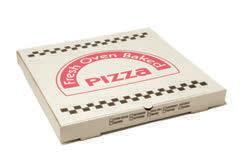









Black women in the U.S. are three times more likely to die during childbirth than white women.
But why?
In a 2020 report, the Centers for Disease Control and Prevention (CDC) states that the disparity is due to multiple factors, including “variation in quality healthcare, underlying chronic conditions, structural racism, and implicit bias.” Researchers report that approximately 700 Black women die every year from childbirth-related issues, according to the International Confederation of Midwives in a March 2022 article.
Because of this, more Black women are deciding to opt out of delivering their babies in hospitals and are choosing instead to give birth at home.
In November, the CDC reported there was a 36 percent increase in Black home births from 2020 to 2021. During that time, home births among (non-Hispanic) Black women increased by 21 percent, from 0.68 percent to 0.82 percent of all births.

While the home birth trend rose during the coronavirus pandemic in 2020, there
was already a mountain of concerns over Black maternal health disparities. The virus only added another layer of challenges to traditional delivery settings, so mothers continued feeling safer at home.

Low-risk mothers — those without any preexisting conditions and healthy, are good candidates for home births, according
to Sakina O’Uhuru, owner of Gentle Spirit Home Birth Midwifery Services in Charlotte, who has been providing maternal care for over 40 years, including over 25 years as a nurse midwife.
While the Black maternal mortality rate is alarming, some additional reasons are pushing more Black women to give birth at home:
Home births give mothers a reassuring alternative to previous in-hospital healthcare abuse. Many women don’t want to chance another painful experience.
A considerable aspect of birthing at home is self-autonomy. Home births are reassuring that you are in the driver’s seat and have a voice. “They realize ‘this is my body, this is my birth, this is my baby, and I should have an ultimate say over the setting, what goes into my body, what goes into my baby’s body.’ O’Uhuru explained.
“I want to set the tone for how I want my birthing experience to be. So if I can have it in the comfort of my home, I am fine with that.”
— Diyasha JonesMidwife Sakina O’Uhuru (left), doula Ashley Davis (right) with the mother and baby. Doula I’man Boykin (right) and a family after the natural birth of their twins. This was the first twin birth Boykin supported. Photo courtesy of Sakina U’huru
Being in a familiar place can feel less intimidating. According to Holistic doula and owner of Sacred Beginnings Birthing Doula Services, I’man Boykin, doulas are responsible for setting a soothing tone for the mother. “During a homebirth, a doula is there to assist in creating a whole and sacred space for birth,” she said. Examples can include music, low lighting, aromatherapy, and more. Anything that would help the mother relax.
The village embrace is better, she said. “Home births also gave people the opportunity to give birth surrounded by their support network, including family, friends and a doula.”
The expense of having a child comes with its own set of concerns. It’s no secret traditional maternal healthcare comes with a considerable cost.
The Peterson KFF Tracker reports the average cost for vaginal delivery is $14,768 and $26,280 for a Caesarean operation. These numbers drop considerably with home birth. According to the National Library of Medicine, the average cost for a home birth is $4,650. This cost can vary from state to state.
O’Uhuru said centering women is her focus. “I love helping women, people and couples have the most satisfying joy-filled, transformative, generationally labor birth experience. One that centers their needs and focuses on the couple as the most important team member.”
She explained that as a midwife, she monitors the pregnancy “just like a doctor would in a hospital.” She added, “You continue to monitor the progress of the pregnancy and labor. The midwife is the one who medically monitors the client.”
Boykin has assisted in seven home births. She describes her role with her clients as a relationship. “I see myself as a sister who supports my sisters, brothers and community in the space of birth as a birth worker,” she said.
Also, during home births, “doulas assist with things like timing contractions, suggesting various position changes, providing touch and massage, providing breathing techniques, assisting partners with various ways to empower,” she added.
Boykin specializes in other services such as labor sound healing, herbal therapy and placenta encapsulation (a process where the
placenta is made into pills that can be taken during the postpartum period).
Mothers who have their babies at home share a special connection. There is a divine journey and connection among those that have their babies at home. O'Uhuru shared that her mother had her at home, and she had her son at a birthing center.
She also assisted in the births of two grandchildren. She said she feels connected to all five of her grandchildren. “Being a grandmother has put the icing on the cake. Being a woman, being a midwife,” she said with a smile.
Boykin also had natural births with her three children. She said, these experiences inspired her doula journey.
As more Black mothers are deciding to have their babies at home, more of them are sharing their decision to choose this option.
Content creator and stay-at-home mom Diyasha Jones had four home births. Her first was with a midwife; the rest were unassisted. Also known as “free births,” these deliveries have no medical professional, midwife or doctor present.

After finding out she was pregnant with her first child in 2017, Jones told her husband, “I’m not going to a hospital. We are going to do this thing the most natural way possible,” she said. He was highly supportive, and they continued doing more research together.
Jones’ extensive preparation and research the first time set the stage for the rest of her deliveries. “Everything we figured out was from the first birth. So we took that existing knowledge and carried it all the way through,” she said.
Now a mother to one boy and three girls, Jones confidently explained that having a choice over her body sealed the deal. “I want to set the tone for how I want my birthing experience to be,” she said. “So if I can have it in the comfort of my home, I am fine with that.”
When Black women share their home birth stories with their communities, it becomes a domino effect of awareness and insight for other women.
“Let’s be radical together,” Jones said. “I always tell women, birth is such a sacred experience, and it’s one of those things that you don’t know how strong you are until you do it.”
It’s essential to do your research when deciding on a home birth. Boykin points out that being in touch with self is vital. “Electing to do a home birth is an extremely rewarding and eye-opening experience," she said. "However, it requires alignment within self and a true understanding of the capability of your mind, body and spirit.” P
Black Maternal Health Week is April 11–17. Founded by The Black Mamas Alliance, this annual campaign brings awareness for the Black maternal mother, experiences and birthing activism.
“Home births also gave people the opportunity to give birth surrounded by their support network, including family, friends and a doula.”
— I’man BoykinDiyasha Jones, home birth mom and her baby Photo courtesy of Diyasha Jones
When women succeed, communities thrive.
Truliant.org
Truliant is proud to celebrate Women’s History Month, and honors all of the women making their mark in our society through mentoring, community development, leadership, business and culture.


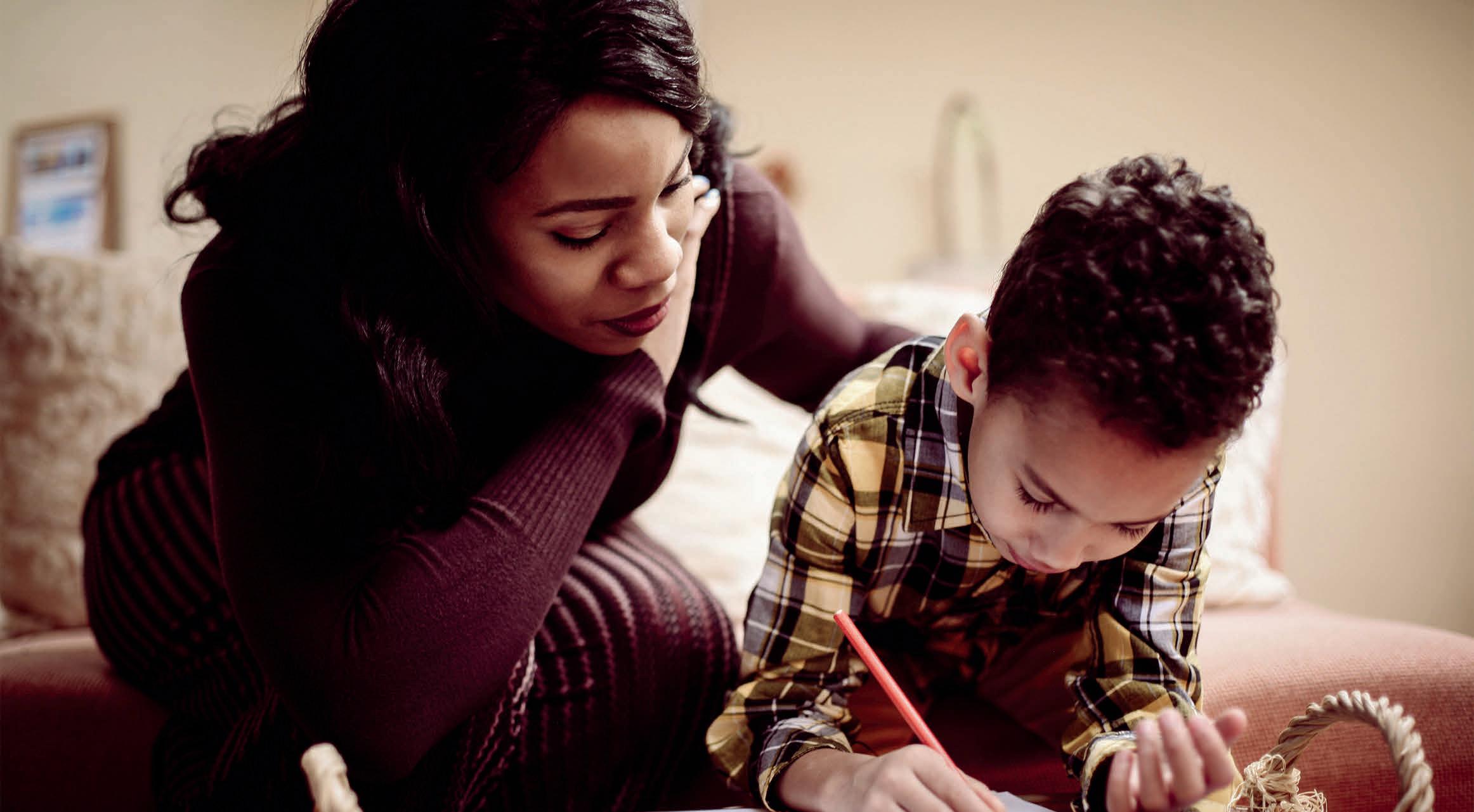

 By Sonja Whitemon
By Sonja Whitemon
Evelyn Hill was a young lady with all the makings of a promising future. She came from a good home. Her father was an entrepreneur. Her mother worked for the state, and her stepmother, who raised her, owned a beauty salon.
At 15 years old, she had always been a good student — but at 16, that all changed. Bored with school and without warning, she quit and left her comfortable life for a life on the
streets. She experienced a period of homelessness and by the age of 20 was locked up for the first time for selling drugs. She continued a life of crime and punishment — in and out of jail and prison for narcotics offenses for the next 25 years.

By some estimates, there are more than 230,000 women currently incarcerated in local, state and federal facilities in the U.S., and the rate of incarceration among women is quickly increasing. In fact, the rate of incarceration among women is increasing faster than that of men, although incarcerated women only
account for about 10 percent of the U.S. jail and prison population.
Both men and women can have a tough time reentering society when they are released, especially if they served long sentences. The world is changing quickly. Some former prisoners have a limited understanding of today’s technology — some never even had cell phones, and many have problems finding housing and employment.
Today, Hill has completely turned her life around. She has reunited with her family and works as a general manager for a national hotel chain — a remarkable, often unattainable feat for
Evelyn Hill, a former client of Changed Choices“Our goals for the program [are] that women who have been impacted by incarceration reach selfsufficiency, that they grow mentally, spiritually and physically, and that they become viable citizens in our community [who] start to be involved in giving.”
—Diane Hunt, Changed Choices executive director and CEO
someone with felony convictions. With the help of the Charlotte-based nonprofit Changed Choices, Hill was able to change her mindset and get the support and resources she needed to begin life again.
Changed Choices helps women who have been incarcerated to restore their lives through healthy decisions and contributions to their communities. The organization empowers current and recently incarcerated women to achieve lasting, positive change.
“Our goals for the program,” said Diane Hunt, Changed Choices executive director and CEO, “[are] that women who have been impacted by incarceration reach self-sufficiency, that they grow mentally, spiritually and physically, and that they become viable citizens in our community [who] start to be involved in giving.”
To be accepted as Changed Choices clients, Hunt said women must have a minimum of two years left on their sentences. That is because one key to the success of Changed Choices is the development of long-term relationships.
During that two-year period, the organization works with the women on issues related to their identity, their purpose, grief, the foundations of faith as well as setting boundaries and caring for their souls. In addition, each client works with a prerelease manager to create a personalized vision plan that includes goals and action steps that focus on their mental, emotional, physical and spiritual health. Their goals are tracked through monthly check-ins.
The organization identifies key resources and client needs that include connecting women to local houses of worship based on the client’s preferences and mentors to provide transportation and connection. They also Identify housing options including Changed Choices’ own reentry home. During the year before release, the organization also provides its clients with resources and information about the reentry process.
Upon release, clients work with reentry managers to address their
immediate needs and long-term goals that include establishing or reestablishing some of life’s basic needs, including identification needed for job and rental applications, setting up checking accounts and financial planning. The organization also coaches its clients on their strengths, goals and vision plans, and connects them to counseling resources.
Ruth Snyder, the founder of Changed Choices, developed a passion for embracing incarcerated women in the early 1990s while working as a volunteer in the local jail. It gave her a whole new insight into these women.
“My eyes were opened because I think many of us have the idea that the people that are in jail or in prison, they’re bad. They’ve done something wrong, but I realized in working with them that these women were victims long before they became perpetrators. And I realized ‘but for the grace of God, there go I,’ and it really touched me. I learned to love those women truly.”
Snyder brought in friends to also volunteer and in 2005 established Changed Choices as a nonprofit. Since then, among its accomplishments, the organization has advocated public policy to support the formerly incarcerated and purchased a reentry house. The nonprofit has worked with 5,000 women and is clearly doing something right.

A 2022 report by the University of North Carolina School of Government found that out of 47,000 former inmates in North Carolina, 41 percent were rearrested within two years of release. The rate of recidivism among clients of Changed Choices has consistently been under 4 percent.
Snyder calls the work that Changed Choices does, “a God thing.” She said, “I feel a tremendous amount of gratitude for the privilege I have had to see so many women develop into beautiful, beautiful specimens of humanity. I thank the Lord for giving me the opportunity. I have dealt with murderers (or people accused of murder). I have dealt with absolutely anything you could think of, and I love those women. I love them genuinely.” P
“My eyes were opened because I think many of us have the idea that the people that are in jail or in prison, they’re bad. They’ve done something wrong, but I realized in working with them that these women were victims long before they became perpetrators.”
—Ruth Snyder, founder of Changed Choices
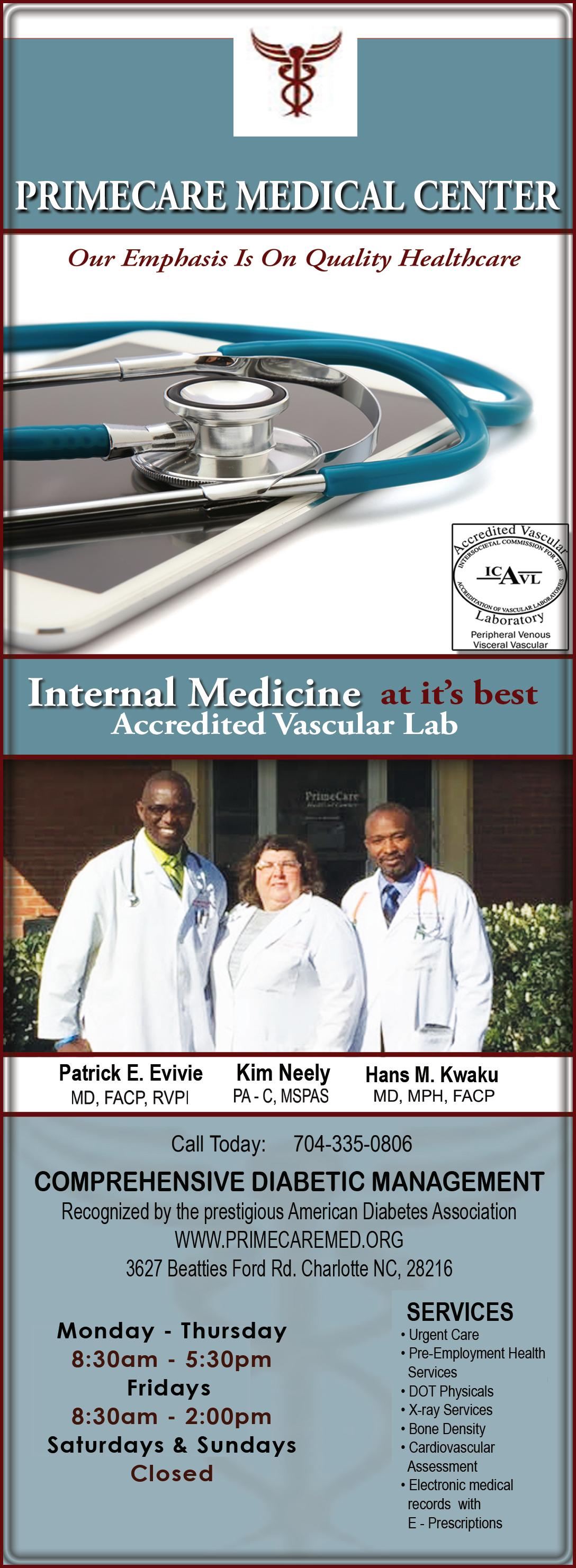


A multimedia maven, Shameika Rhymes’ talents have not only been seen domestically but also internationally. Rhymes, who has a bachelor’s degree in mass communications from East Tennessee University and a Master of Science degree with a specialization in sports commerce and leisure from the University of Memphis, has put her media savvy to work across multiple platforms and demographics.
A former guest co-host on “ET Canada Live” and a regular contributor on “TMZ Live,” the former TV news producerturned-journalist has written cover stories for Studio Gannett’s USA Today Magazine and SouthPark Magazine. She has also written for Charlotte Magazine, ET Online, Essence, Ebony and JET magazines, Insider, InHerSight, the National Museum of African American Music, Shondaland, Vanity Fair, and more.
Rhymes can often be seen on camera as the creator of the entertainment show, “Check the Rhymes.” Frequently
by John Burton Jr. and Cheryl Clemmonscoined “where GenX meets pop culture,” the show’s discussions delve into the lives of media personalities and celebrities. Rhymes has interviewed such celebrities as Sean Patrick Thomas and McKinley Freeman from the TV series “Reasonable Doubt,” singer Will Downing, Nicco Annan from “P-Valley,” WWE star Bobby Lashley and others. TheMofochronicles.com is Rhymes' deeply personal passion platform where she can express her authenticity and be fully transparent. She also created the “Ladies Edition” podcast to express personal reflections. “I always try to be my authentic self and share my experiences, especially with my own health journey, because I didn’t see anyone online being open and honest about dealing with fibroids as a Black woman, so I created the “Ladies Edition” podcast for those exact conversations,” said Rhymes.
— By John BurtonBrandy Sims, a transplant from Minneapolis, has always had a passion for helping others. “My impact on the world is to do God’s will and empower and support the underserved,” said Sims, the founder and CEO of Elizabeth House Foundation in Charlotte.

The organization was founded in honor of her late mother, Ruth Elizabeth Sims, who died of breast cancer at age 54 in 2008. At the time of her mother’s diagnosis, she was already at Stage 3. Her mother’s young death ignited a passion within Sims to help underserved women get the help they need to live healthier and longer lives. She quickly learned early detection can save lives and that knowledge is key.
A graduate of Metro State University, Sims has decades of experience in nonprofit and philanthropy, dating back to the late 1990s. In Minneapolis, she worked for Pillsbury Neighborhood

Services, a nonprofit organization offering community-based support to ensure families are healthy, safe and ready to thrive.
She also worked in the outreach and advocacy department for Women and Children’s Services and assisted in the Bottoms UP campaign, which sent 10,000 diapers to the governor to advocate for quality, affordable childcare. The success of the campaign created new funding to assist single moms in the program. Sims’ goals are to continue to push the preventive health care initiative, close the gap of disparities among women of color, and provide access to critical health care. Still, she said, her happiest moments are when she can serve and “be a blessing to others.”
— By John Burton Photo courtesy of Shameika RhymesCurrently reigning as Ms. Black International Ambassador 2022, Erica Lawrence is a beauty queen with a purpose. Lawrence said she wants to use her platform to promote causes and elevate issues.

Lawrence, the mom of a 10-year-old daughter, and a business operations and project management consultant is a fervent advocate of cancer awareness. Since 2009, cancer has been the leading cause of death in North Carolina, according to the Centers for Disease Control and Prevention. This resonates with Lawrence because her mother is one of the many North Carolinians battling the disease.
To educate people about cancer and fight cancer, Lawrence founded the H.E.A.L. Initiative, which aims to enlighten the Black community on cancer prevention, promote healing and improve the quality of life for
For Alesha Brown, civil rights attorney and executive director of the nonprofit organization For The Struggle, striving for racial equality and social justice “has always been a huge part" of her life. "I wanted to be part of a community and help people in need of representation,” she said.

The Charleston, South Carolina, native founded For The Struggle in 2020 to advocate for residents of the Beatties Ford Road neighborhood that is home to many of Charlotte’s African American senior residents.
Beatties Ford Road provides a direct route into Uptown Charlotte via West Trade Street and has served as a central corridor for the city’s African American community for decades with a mixture of historic properties, homes and commercial buildings. The mission of For The Struggle is to “utilize various outlets, including community outreach, policy reform, and legal action to advocate with and on behalf of communities to zealously fight systemic issues of racial and social injustice,” Brown said.
She lives in the neighborhood to assure that she is “up close and personal” with her neighbors’ most pressing issues, especially
home repairs, such as painting, carpentry and yard work, that are expensive and unaffordable for senior homeowners. The organization also educates residents in areas of voting and the census.
“It was vital for me to see up close what the residents need and to advocate for them. People here need help and guidance with many issues,” Brown said. “For instance, there is a huge population that’s being threatened with displacement by developers who are buying land in the area, raising prices and forcing residents out. They need someone to stand up for them.”
Brown’s commitment to her community was recognized by “The Kelly Clarkson Show” when she was named “Good Neighbor of the Year for Charlotte” and appeared on an episode in November.. The organization also hosts events on traditional African American holidays such as Juneteenth and provides a senior feeding program and community response team.
For information about For The Struggle, visit forthestruggleinc.com/ or call 704-800-6628.
— By Cheryl Clemmonscurrent cancer patients. To do so, H.E.A.L. offers practical ways to begin healing at home through events, speaking engagements, personal visits and social media.
Lawrence, a University of North Carolina at Greensboro graduate with a bachelor’s degree in Marketing and Communication Studies and a master’s degree in Business from Mercer University, said she wants to make her impact on the world purely by showing kindness and patience.
“I believe many of the world’s major issues such as crime and economic disparity could be resolved if everyone had a little more patience and a little more kindness,” she said. “I purposely go out of my way to be kind to people daily in hopes of inspiring them to ‘pay it forward.”
— By John Burton Photo courtesy of Erica LawrenceLaksha Ramkumar, the 2023 student advisor for the Charlotte-Mecklenburg Schools Board of Education, has big plans for her school and for her future.
The 16-year-old Butler High School junior, whose term started in January, has set her goal to use her voice to educate fellow students on how to better understand how the Board of Education makes its decisions. She decided to run after attending a CMS School Board meeting.
“What I heard there inspired me to get involved in my education and that of my fellow students. Our high school education affects our entire future, and we need to get more involved in the process, as well as getting our parents more involved with our teachers,” she said.
“I understand how crucial this role is, especially in today’s education system. I will do everything in my power to advocate for the voice of students across CMS,” she told WBTV in November.
Her goals also include increasing scores on national and state standardized and
required tests as well as in required courses like math and science that are crucial to college acceptance.
Laksha plans to become a general surgeon or earn a Ph.D. in cell biology. “Either way, I want
When Judith Brown tried to navigate the federal government system to apply for disability benefits, she found herself tangled in a suffocating web of office visits, phone calls, letters and indifferent government employees that was impossible to penetrate. After a long struggle, she finally received her benefits, but was also left with a determination to help others who were caught in the same nightmare.
“I had no idea what I was doing when I started applying for benefits. I also have two sons who are autistic. There was all of this red tape to get through, a lot of paperwork and phone calls. It was a battle. I promised myself after I got my situation straight, I would take what I’d learned and help others because there was no support in the community for problems like this. I know what it’s like and how hard it is to get the support you deserve.”
In 2018, Brown created Project 70Forward, which serves residents of the Grier Heights, Hidden Valley and Thomasboro-Hopkins neighborhoods. The

to be a doctor,“ she said. Her target colleges are Duke University, Stanford University and Cornell University. “I’ll be honored to be accepted to any one of these schools.”
— By Cheryl Clemmonsprogram provides applications, resources, personal connections and contacts in the community and also acts as an advocate.
The service also provides rides to appointments, food, clothes — “just about everything we can,” she said. To increase the program’s reach, Brown has partnered with the Crisis Assistance Ministry to provide necessities like food and clothing. Also, two vans and a car were donated to the organization, and there is a volunteer team of five board members and four team members.
She is proud and grateful that Project 70Forward has grown as it nears its fiveyear anniversary, and she’s looking forward to expanding services.

“I want to do this for the rest of my life. I’ve lived through this. It can take two to four years to complete the process to receive disability payments,” she said. “It’s a crisis. I want people to know they’re not out here alone.“
Contact Project 70Forward at outreach@project70forward.org P
— By Cheryl Clemmons Laksha Ramkumar (far left) is meeting with faculty members and students at Butler High School (where she attends) in her role as Charlotte-Mecklenburg Schools Board of Education student advisor. Photo courtesy of Charlotte-Mecklenburg Schools






What do current trends like the Great Resignation, Quiet Quitting and Low Productivity have in common? Conventional leadership that fails to embrace a new more supportive work environment for employees with more flexible work options than ever before. If you are struggling with talent retention or low productivity, your management style could be the reason. If so, there is a lot you can do in a short span of time to fix the problem.
We know the pandemic was hard on everyone and widened inequality, but one group it especially impacted was bad managers.
The pandemic exacerbated gaps in outdated management styles and worsened bad managers as many began working from home, according to an October 2021 article on Humu.com. This transition to a virtual community has resulted in a trickle-down impact on organizations across all industries, driving higher turnover rates, lower productivity and an increase in quiet quitting. Managers who struggle to adapt face challenges with employee engagement, productivity and responsiveness from team members. Unfortunately, outdated management has an equally outdated solution to this problem: returning to in-office work.
Larry Fink of Black Rock Capital said returning to the office would increase productivity and offset inflationary pressures. We can see why it makes sense to conventional managers; they were not as bad when everyone was in the office. They didn’t need to plan and prioritize; they could easily interrupt subordinates. They could ensure productivity theater, micromanage and feel connected to the team without having to form genuine relationships. The fact is that managing remote teams is more difficult and requires creativity and additional skills. Therefore, returning to familiar office management practices makes sense to conventional managers. Unfortunately, sticking to what has worked in the past and ignoring the need for innovation is often what sinks companies.
Our talent surveys at Charlotte Works have repeatedly shown that employees are willing to leave jobs for flexibility and remote work. While employers are used to having almost all the leverage when dealing with employees, that is drastically shifting today. With the proliferation of remote work, companies are competing for talent more today than ever before, as job opportunities are no longer limited by physical geography. Just as eCommerce drastically shifted the balance of power in retail, remote work is increasing competition for talent.
If managers are making employees come into the office more than the job functions require, that company is putting itself at a competitive disadvantage for talent. The Charlotte area went from around 80,000 remote workers in 2019 to over 330,000 in 2021 that has also resulted in the in-person labor force in this area contracting by almost 20 percent. Companies competing for in-person talent have about 1 million local workers versus 27 million remote workers nationally.


This isn’t to say that all work must be remote. Certain jobs and roles will always need to be done in person, but managers need to be honest about what is required and what is not. If employees see companies requiring a return to office for the type of work that they have been doing remotely since the start of the pandemic, it will likely tank morale. While intentional and genuine efforts to build culture are one thing, vague platitudes from management about developing a better work environment will only reinforce the feeling of inauthenticity and the knowledge that managers are not interested in supporting their employees. Returning to the office
under the guise of productivity or getting back to normal is a bad management feedback loop that will only snowball the problem for companies that take this approach. Productivity theater doesn’t drive results, and neither does intentionally decreasing employee morale. This will only ensure that top talent flees to competitors with more flexibility. This ensures that all that will remain at these companies are those without other options and individuals will continue to quietly quit as they gain the experience or skills they need.
Returning to office work is not a solution for low productivity or communication challenges. What is needed is an honest assessment of managerial performance and what managers need to better engage employees. At the end of the day, managers are responsible for team performance and should be held accountable for performance without simply deflecting accountability due to shifts in what is required out of managers.
For managers struggling today, what can be done? There is no one size fits all solution. It is about getting creative and being willing to explore a fresh and innovative approach. An example might be leveraging technology to give shift workers more flexibility in scheduling. We have seen restaurants offer paid time off, or adopt intentional strategies to source more non-traditional talent. What is more important is what we haven’t seen; success with the status quo.
For managers with teams that can perform their jobs remotely, finding success is about embracing flexibility while empowering and motivating your team. Developing team members skills to selfmanage, work autonomously and promoting asynchronous communication will help team members with work-life balance and help create dedicated focus time. This is easier said than done, but listening to employees, supporting their personal well-being and building strong relationships is key. P
Throughout a tumultuous journey, Carla A. Carlisle has invested heartache, emotions and strength to help JC, who is now her adopted son. Carlisle is a mental health advocate and author who uses her experience and tools she gained along the way to help others.
In 2010, Carlisle became a foster parent to a 10-day old baby boy who was two months premature. He was the 11th child of his birth mom who had lost her rights to the other 10 children.
At six months old, JC was given back to his birth mom by the court. Given her concern for his safety, Carla contacted JC’s birth mom about a week later. For the following six years, Carlisle co-parented with the birth parents, an experience she describes as tumultuous at best.
When JC started pre-school, he was with Carlisle about 75 to 80 percent of the time when she noticed he was showing signs of trauma. After JC had a major mental health crisis at age 6, Carlisle gained emergency custody of him.
Over the next several years Carlisle went through the courts to gain various forms of custody of JC, including emergency, temporary and permanent custody. Carlisle eventually began the adoption process, which was completed in 2018.

After a lot of heartache, hope, prayer, over $100,000 and eight years later, Carla became JC’s legal mother.

During those difficult eight years, Carla described feeling like she had no control. “Loving someone so much and not being able to protect them” was a humbling experience, to say the least. She felt she had lost sight of her own personal power. As a person of faith, she decided to “let go and let God.”
Carla sought out targeted tools she needed to support herself and her son through the traumatic experience. When she gained emergency custody of JC, she took the Trauma Informed Parent 8-week class offered by Rowan County Department of Social Services. From there she signed up for other trainings, seminars and webinars to learn as much as she could. She started working with various therapists for herself and JC.
“I learned so much about myself; it changed me for the better in a lot of ways,” Carlisle said. Throughout the process, she learned she also had to take care of herself.
Carlisle and JC went through trauma-focused behavioral therapy together which is where they learned about the cognitive triangle, a concept they include in their book.
Carlisle partnered with her son to write “My Big Notebook: It’s About Me with a Little Help from My Friend JC,” which was published by SPARK Publications.


“My Big Notebook” received the 2022 Platinum Hermes Creative Award and the Reader’s Favorite Award, and is intended for elementary school and early middle school aged children with its timeless methods and strategies. Carlisle and JC wrote the book to be interactive and serve as a buddy to the reader. It normalizes mental health in children and provides education about feelings and how to express them through coloring, journaling exercises, positive affirmations and other additional tools.
“To see the book with his own eyes has been amazing,” said Carlisle. The book reminds her of how far they’ve come, she added. Looking through the book helped Carlisle realize that the healing journey is an ongoing process, she said. With these tools “we take care of our emotional and mental wellness just like we’re supposed to take care of our physical wellness,” Carlisle said.
“JC was very vocal about how he wanted it (the book) to go,” she continued. “My Big Notebook” helps children connect to their feelings and see beyond their circumstances. It is not intended to replace therapy; however, it provides tools to cope, process what they have going on in their lives and opens the door for them to be expressive, she said.
A labor of love, Carlisle and JC wrote “My Big Notebook” to support children who are dealing with anxiety, trauma, toxic stress, loneliness, isolation, illness and missing loved ones. It can be a tool that children use independently or with adult support as needed. She said, “Kids can laugh and have a little fun while they’re learning something.” P
The Mahogany Mermaids swim club, a community of proud Black swimmers, encourages diverse communities to immerse themselves in activities in, on and around water. The organization also works to tear down misconceptions around Black people and water by empowering them to reclaim their underwater heritage.
It all started in 2014 when swim trainer and head coach, Nadine Ford, looked for friends to swim with and organically formed a group of friends who would visit the local pool together, watch YouTube videos and help each other train. When it was time to get her swim bag monogrammed, Ford said, “Instead of my name, put ‘Mahogany Mermaid’ on there.”
Ford and a few other members of Mahogany Mermaids went on to earn several coaching certifications in 2017 and are now certified U.S. Masters Swimming (USMS) instructors. This opened the door for the Mahogany Mermaids to become the first all-Black swim club registered with U.S. Masters Swimming in 2018.

In 2020, the club partnered with Miller Swimming, applied for and received the USMS Adult Learn to Swim grant. The grant funding allowed for the formation of Evolutionary Aquatics, a nonprofit dedicated to making recreational aquatics more comfortable and available to Black adults. Now, the Mahogany Mermaids can expand services in the community and offer low-cost intermediate and advanced level masters swim practices and kayaking adventures.
“The U.S. Masters, our governing body for adult swim, strives for inclusion and diversity. For the past few years, the USMS and other organizations have acknowledged Evolutionary Aquatics as leaders in paving the way for other Black swim clubs to do the same,” said Ford.
Ford reminisces on her summers in Charlotte’s Druid Hills neighborhood where she’d spend hours splashing and soaking in the pool so much that her skin would wrinkle from being in the water for so long. Many of the swimmers credit Ford for their success, but the coach says it’s not about

her. For some, it provides an opportunity to compete in a sport they love. For others, it’s a chance to reclaim a childhood pastime.
“It just made sense for me to join. We have a lot of camaraderie, we love each other so much, and there’s no body shaming,” said former member and competitive swimmer for Howard University, Nashira Waldron, who credits Ford with creating an environment of inclusion.

Evolutionary Aquatics and its staff also serve as historians, educators and mentors to their community. They provide services and resources to help remind people of who they are, where they came from and what their ancestors accomplished. In their classes, they focus on the benefits of a positive mindset while steering club members away from using negative and conditional language when facing challenges in the water and in the world.

From challenging the historical and societal trope that “Black people don’t swim” to providing low to no-cost adult swim lessons, the Mahogany Mermaids and Evolutionary Aquatics believe everyone should be safe and comfortable to pass down this generational life-saving skill and have fun while doing so.
“The more visible Black people are with swimming, the more we will chip away at that lie. And hopefully, if we can chip away at that lie, we can also chip away at other lies that have been cast upon us,” Ford said.
“Joining Evolutionary Aquatics has dramatically exceeded my expectations.

My intention was to learn how to swim so I could enjoy vacations and increase water safety for my family,” said USMS Adult to Learn Swim Instructor, Brandon King.
“But I garnered an additional sense of empowerment. I found a community of people who challenge you to break barriers and achieve your personal goals.” P
These Charlotte women are defying stereotypes and forging their own paths in fields typically dominated by men. The vision, grit and determination they show every day in pursuit of their unconventional dreams is worth recognizing.
LaToya Faustin, executive director of She Built This City
LaToya Faustin, executive director of She Built This City, wants girls and young women to develop skills in construction now so they can earn high salaries and banish stereotypes in the future. The organization seeks to spark interest and build pathways for youth and women in marginalized communities to enter the workforce by providing career coaching for transitioning women into apprenticeships and employer connections.
Faustin said the U.S workforce is changing, and more women are qualified for non-traditional jobs. “Wouldn’t any woman want to earn $25 an hour working in the trades rather than making minimum wage standing behind a cash register for eight hours a day? Women are not unfamiliar with hard work. We are detail oriented and great communicators. We can excel in the construction business.”
According to industry statistics, women made up 6.2 percent of the 8 million construction workers in the U.S. between 2020-2022.
She Built This City was founded over 20 years ago. Faustin’s interest in construction stems from the history of how Black communities were originally created by Black tradespeople who built affordable housing.
She joined the board as Chief Operating Officer in 2020 working with founder Demi Knight Clark, and became Executive Director in 2021. The program offers camps, workshops and women-focused career training that starts with girls ages 9-12 in areas including construction, engineering, equipment operation, entrepreneurship and after-school activities to provide finished projects to local charities.
Middle school girls train to become entrepreneurs and learn a trade with the goal of joining programs in high school and learn how to pitch their ideas to local builders.
Graduates mentor younger students as “pay-it-forward” ambassadors. Graduating high school senior girls can seek advanced training through three-month programs in the area of their choice, and 20-plus and career-transitioning women find opportunities and/or training in construction, automotive, manufacturing and tech trades.
“The program puts the girls on a path to becoming successful and confident,” Faustin said. “And they’ll change the stigma of women working in construction. Give a woman a job, and we can do anything.”
For more information, visit shebuiltthiscity.org
Ladies, tired of your boring, low-paying job? Well, charismatic and seriously enthusiastic Clarissa Rankin has a lucrative career choice for you, and she gives “five great reasons” to become a truck driver on TikTok to her 1.8 million followers.

“I love to be able to travel. I love income. I love being a superhero,” Rankin said.
“As long as these wheels are turning, you need me. My job is not going anywhere. And to make six figures in income, I only had to go to school for two months. Those are the reasons. So, say it loud, say it proud. It’s truckers life baby!”
Rankin’s wit and humorous tales of life on the road have also been featured on the ”Inside Edition” television show. The married mother of two earned her Commercial Drivers License in 2017 and never looked back. In 2022, the number of women employed in the truck transportation industry hit 1.6 million, a record since the U.S. Bureau of Labor Statistics started tracking the numbers in 1990. Drivers can earn as much as $250,000 annually, however, the pay can fluctuate due to increases in fuel prices. Women’s share of the trucking industry workforce is now at an all-time high of nearly 18 percent, mostly in truck-driving roles.
“This is the place to be for women who want to make some real money,” said Rankin, who earns over $150,000 annually driving, in addition to making about $12,000 in endorsements from social media where you can find her educating her followers with tales of the life of a female trucker.
While she loves her profession, Rankin is quick to acknowledge that women face harassment and pay discrimination. But, she said, the widening of opportunity for women to work in high-paying jobs traditionally reserved for men is still long overdue. She asserts, “It’s our time ladies.”
Find Rankin on TikTok @clarissarankin P
Photo courtesy of LaToya Faustin By Adrienne Singletary, Corporate Speech-Language Pathologist
By Adrienne Singletary, Corporate Speech-Language Pathologist

Excellent communication skills are essential for workplace success. Even for those who do not work directly with clients, interpersonal communication skills are still vitally important. These skills help facilitate productive co-worker relationships and can have a large impact on the overall success or failure of a business. For example, the stress caused by having to work underneath a manager who lacks interpersonal skills is believed to cost American companies an estimated $360 billion every year.
Effective communication skills are moving from soft skills that are simply nice
others and who can communicate well both verbally and non-verbally. Yes, there are many organizations that provide public speaking preparation; however, the questions you should ask yourself are as follows: Can those same organizations provide you with specific techniques needed for speech articulation, speech fluency (stuttering), executive presence training, and accent modification/ reduction? Do the individuals in those organizations have specific certifications and degrees designed to assist you with your speech and language skills (i.e., Communication Sciences and Disorders degree, Speech-Language Pathology
Hopeful homebuyers may be feeling the whiplash of the last three years – from historically low mortgage rates to rapidly rising rates and from bidding wars to sellers pulling home listings. However, there are reasons for optimism in the year ahead. Even the experts don’t hold a crystal ball to the ins and outs of the homebuying market, but these are three broader trends Charlotte buyers can anticipate in the year ahead:
• Limited housing supply: Low inventory and homes selling at a faster rate have created a challenging market for the past several years. The reality is this might not change any time soon given current market dynamics. Additionally, Bank of America’s latest Homebuyer Insights Report found that 70% of homeowners ages 45 to 76 plan to or have retired in the home they already own. With more people staying in their homes while fewer are selling them, national active home listings saw a 53% decrease between July 2016 and December 2022 since Realtor. com began tracking this data.
• A steady start to the year: In the last several weeks of 2022, rates consistently dropped after reaching a peak of 7.08% in November 2022. The biggest mistake that potential homebuyers can make is waiting and trying to time the market. Instead, consider your personal timeline and when you’re financially ready to buy.
• Buyers hold more decision-making power: At the height of the homebuying frenzy, there were stories of homebuyers overbidding by enormous sums or making numerous concessions. As we shift to a more balanced environment between buyers and sellers, buyers will have more time to think and negotiate – making the shopping experience more manageable.
The challenges and opportunities that the homebuying environment presents will require some careful planning for those looking to buy. Whether 2023 is the year you become a homeowner or purchase your second home, here are a few strategies to get you started:

• Take advantage of digital tools: Looking for more convenience and control over home financing? Online resources can guide you through the mortgage process from start to finish and prevent any delays in the process, whether it’s checking the status of your loan or submitting required documentation electronically. They’ll even provide you with a to-do list of outstanding tasks and status and details of a loan application.
• Show sellers you can meet financial obligations: Whether you’re getting additional down payment assistance or earn a larger income, putting down a larger down payment could lower your mortgage rate. Anytime you can showcase to the seller that you’re in a good financial position, you should do so, as it’ll make your offer stronger.
• Pay discount points on your mortgage: Mortgage points, also known as discount points, are fees you pay your lender at closing for a reduced interest rate on your loan. While this might not be the right strategy for everyone, paying discount points on your mortgage could offer potential savings over the course of the loan. In general, the longer you plan to own the home, the more you’ll save using points. Also determine whether you have the cash available to buy points up front.
• Research assistance in upfront costs: Even if a monthly mortgage payment fits into your larger financial picture, many homebuyers might still be struggling with saving for the down payment and closing costs. Recognizing cash reserves are often the biggest barrier to homeownership, Bank of America offers up to $17,500 in down payment and closing cost assistance when used together - no repayment necessary. Additionally, the Bank of America Down Payment Center helps homebuyers find state and local down payment and closing cost assistance programs in their area and the Bank of America Real Estate Center® identifies down payment and closing cost grant-eligible properties for sale across the country.
• Take your time: Finally, don’t rush into it. Take time to improve your credit score, research lender options, and understand what you can comfortably afford before jumping in.
While buying a home today may require a bit more patience and persistence, taking the time to prepare for what’s ahead, going in with the right mindset and taking advantage of the resources available to you can put you well on the path to your next home! P
Bank of America, N.A., Member FDIC Equal Housing Lender ©2023 Bank of America Corporation
Johnson C. Smith University announced President Clarence D. Armbrister will retire in June. He became the university’s 14th president in 2018 when he was appointed to lead the historically Black university.

“It’s a bittersweet moment for me and my family because we love this university and the unparalleled opportunities HBCUs like ours provide for thousands of students across the country each year,” Armbrister said.

President Armbrister was instrumental in securing the single largest gift the university has ever received. The donation of more than $80 million is part of Charlotte Mayor Vi Lyles’ Racial Equity Initiative. The funds will support the strategic plan that Armbrister and the board adopted in 2021.
The board anticipates having the next president in place by the start of the 2023-24 school year.

Atrium Health announced a $10 million gift to the Giving Hope campaign from Anna Spangler Nelson and Thomas C. Nelson through the C.D. Spangler Foundation. The gift will transform women’s care at Atrium Health facilities across the region by increasing access to care, expanding education and training programs to improve birth outcomes and providing children with a healthy start in life to help prepare them for academic success.
Thomas Nelson — chair of both Atrium Health’s board of directors and the new Advocate Health board, of which Atrium Health is a part — and his wife Anna are committed to supporting an ambitious, multifaceted strategy to improve health access and the overall health for women and adolescent girls across the state.
With the C.D. Spangler Foundation support, Atrium Health will enhance its maternal care and healthy beginnings program, expanding both the Centering Pregnancy and Centering Parenting programs.
“This transformative gift from the C.D. Spangler Foundation will allow Atrium Health to support even more women and their families at every stage of the parenthood journey and help bring their children into the world with the resources and opportunities to thrive,” said Eugene A. Woods, chief executive officer of Advocate Health.
Johnson C. Smith University President, Clarence ArmbristerWe care about you and your family. The new COVID-19 booster is free and now available at Mecklenburg County Public Health locations and at most pharmacies in our community. Make sure you are up to date on your vaccinations and take a COVID-19 test before gathering. If you test positive, stay home and get treatment. Call our hotline or visit our website to use our new chat feature for up-to-date answers and to find vaccination locations near you. COVID doesn’t care, but we do.
The Mayor’s Racial Equity Initiative has surpassed its private-sector fundraising goal of $150 million, thanks to recent donations from Honeywell, Albemarle, Bloomberg Philanthropies and other anonymous contributors. These corporate gifts push the private-sector donations to $157,525 million, surpassing the original $150 million private-sector goal.

“There has undoubtedly been a tremendous amount of financial support in the inaugural year of the MREI and with money allocated to all four Priority Focus Areas, I couldn’t be more grateful,” said Charlotte Mayor Vi Lyles.
In the latest round of gifts, Albemarle committed $1.5 million and Honeywell committed $5 million. Also, Bloomberg Philanthropies made an additional gift beyond the commitment they announced when the initiative was launched. The Mayor’s Racial Equity Initiative has raised $240 million of the initial public-private $250 million total goal, with additional public-sector grants pending.
The dollars raised will address racial inequities in Charlotte — with the monies funding the key priority focus areas, including transforming JCSU into a top-tier, career-focused HBCU.

Bridging the digital divide through the work of the Center for Digital Equity at Queens University of Charlotte and investing in Charlotte’s six “Corridors of Opportunity” neighborhoods.
Launched in November 2021, MREI has the overall vision to show how Charlotte will be the gold standard American City, where racial equity, social justice, economic opportunity and upward mobility can be achieved through transformational public and private partnerships.
Duke Energy has given Central Piedmont Community College (CPCC) a $500,000 grant to create a 16-week utility line worker training program at the college’s Harper Campus. The U.S. Bureau of Labor Statistics estimates about 23,000 openings for line installers and repairers will be available each year over the next decade. With this trend in mind, the partnership seeks to develop a pipeline of diverse, skilled and talented utility line workers by investing in the education and career development of local citizens.
“Our most valuable asset is our people, and line workers are the foundation of our company –especially as we modernize our grid and integrate new technologies,” said Harry Sideris, Duke Energy’s executive vice president of customer experience, solutions and services.
Starting in spring 2023, the first of three planned cohorts of 12 students will begin.
“With utility line workers earning an estimated starting annual salary of $74,000, this is a career that can transform the lives of students and their families,” said Dr. Kandi Deitemeyer, CPCC president. P
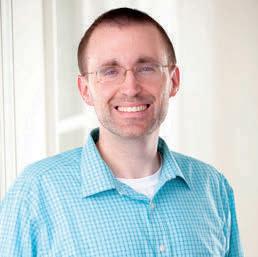
Tryon Medical Partners is proud to have been recognized by our peers among North Carolina’s Top Doctors When a practice is built on creating stronger relationships, it’s the foundation for award-winning care.
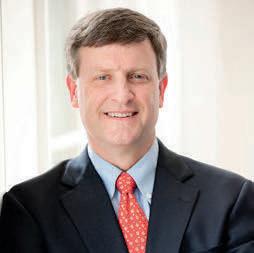
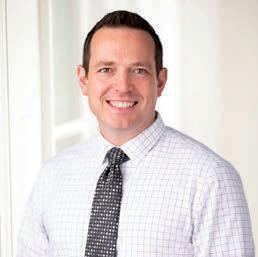

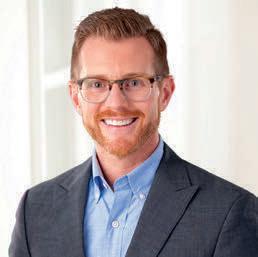

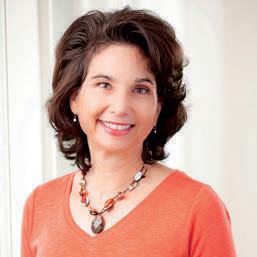
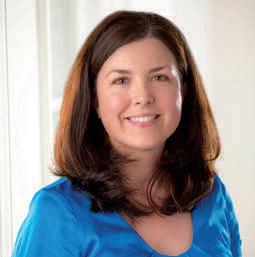
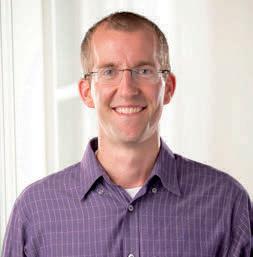

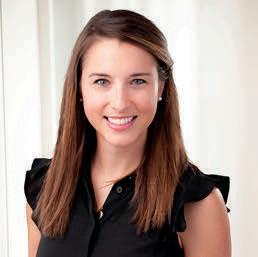
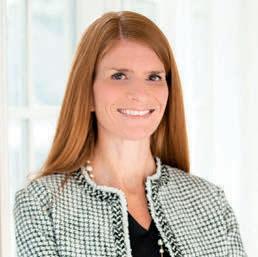

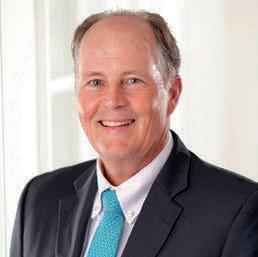
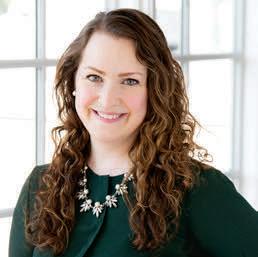
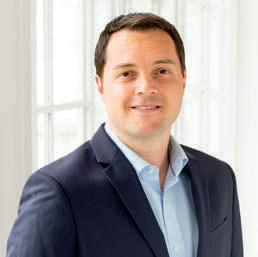
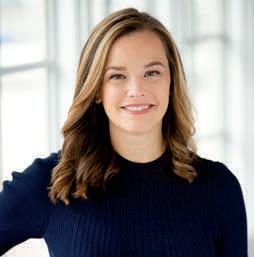

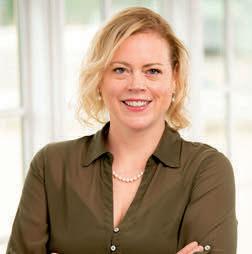
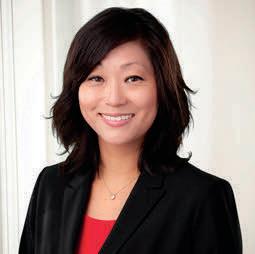
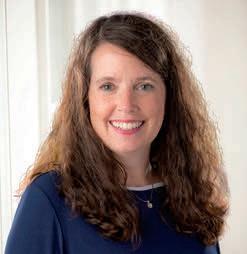


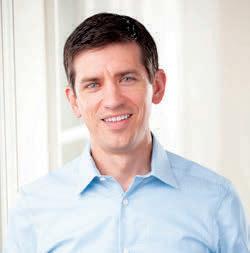
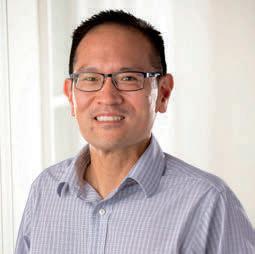
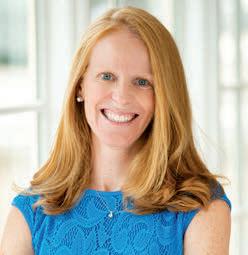
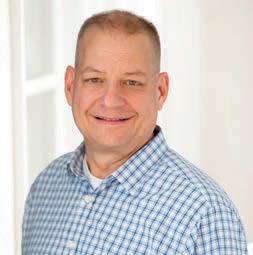
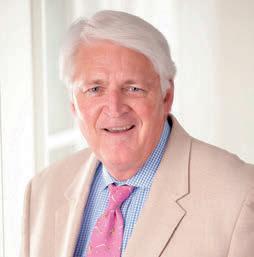
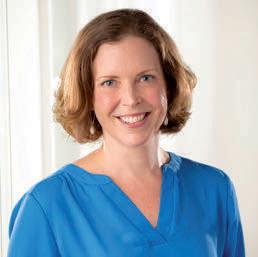
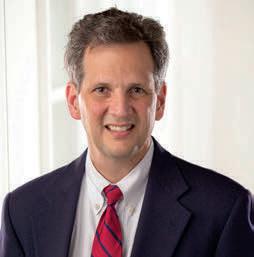
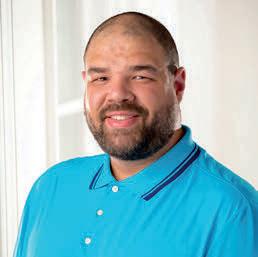

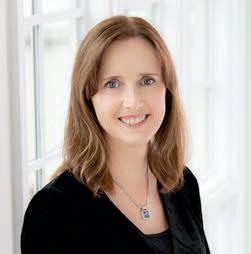
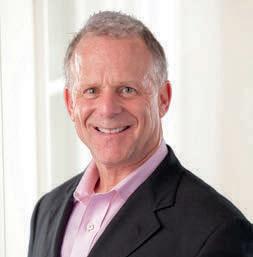
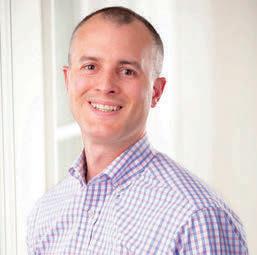
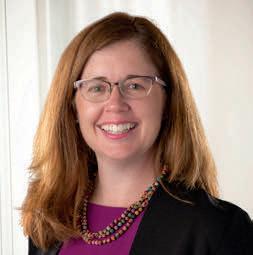
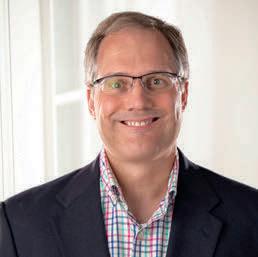
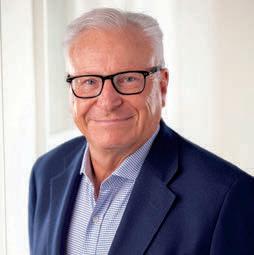
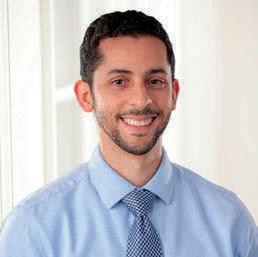
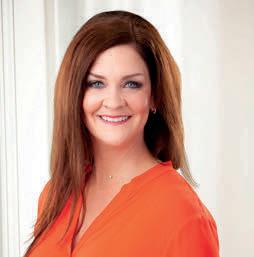

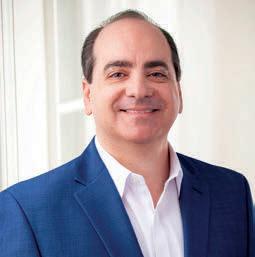
 Dr. Daniel Aquino Dr. Amit Aravapalli Dr. Anne Barnard Dr. Francisco Bautista Vitiello Dr. Oscar Brann
Dr. Allen Brantley Dr. Kerry Briones Dr. Jason Carnes
Dr. David Framm
Dr. Kym Furney
Dr. Alicia Cole
Dr. Jacob Coleman
Dr. Peter Copsis Dr. Meredith Dasher
Dr. Charles Ferree
Dr. Christopher Ferris
Dr. Erin Stone Dr. Ehrlich Tan Dr. John Tenini Dr. Charles Upchurch Dr. Hala Webster Dr. Julianne Weidner
Dr. Caroline Wilds Dr. Jill Zouzoulas
Dr. Diane George Dr. Jennie Hauschka
Dr. Eric Hilgenfeldt
Dr. Erin Hodges
Dr. Kent Holtzmuller Dr. Martie Jewell
Dr. Alison Johnson
Dr. Tina Kennelly Dr. Eric Landis Dr. Adam Ligler
Dr. Alicia Reams
Dr. Patricia Roddey
Dr. Gary Rolband
Dr. Ryan Shelton Dr. Scott Smith
Dr. Michael McCartney
Dr. Daniel Aquino Dr. Amit Aravapalli Dr. Anne Barnard Dr. Francisco Bautista Vitiello Dr. Oscar Brann
Dr. Allen Brantley Dr. Kerry Briones Dr. Jason Carnes
Dr. David Framm
Dr. Kym Furney
Dr. Alicia Cole
Dr. Jacob Coleman
Dr. Peter Copsis Dr. Meredith Dasher
Dr. Charles Ferree
Dr. Christopher Ferris
Dr. Erin Stone Dr. Ehrlich Tan Dr. John Tenini Dr. Charles Upchurch Dr. Hala Webster Dr. Julianne Weidner
Dr. Caroline Wilds Dr. Jill Zouzoulas
Dr. Diane George Dr. Jennie Hauschka
Dr. Eric Hilgenfeldt
Dr. Erin Hodges
Dr. Kent Holtzmuller Dr. Martie Jewell
Dr. Alison Johnson
Dr. Tina Kennelly Dr. Eric Landis Dr. Adam Ligler
Dr. Alicia Reams
Dr. Patricia Roddey
Dr. Gary Rolband
Dr. Ryan Shelton Dr. Scott Smith
Dr. Michael McCartney
Women make up 50% of our workforce at Bank of America. We proudly continue to recruit and invest in helping women succeed within our organization. Outside, we support the economic empowerment of women in our communities and all around the world. We believe that achieving strong operating results — the right way — starts with our teammates, and we know we must reflect the diversity of the clients and communities we serve. We offer a range of development programs for female leaders who show potential as future business and C-level executives, including our Women’s Executive Development Program, to engage, develop, retain and support the career advancement of high potential talent.
Our ongoing work to invest in women means supporting women business owners and putting into action the belief that female entrepreneurs are fundamental to driving strong, healthy economies.

Through our partnerships with Vital Voices, the Tory Burch Foundation, the Cherie Blair Foundation, Cornell University and Kiva, we’ve helped 75,000 women from more than 85 countries grow their businesses.
To learn more, visit our Empowering Women page at bankofamerica.com/women.